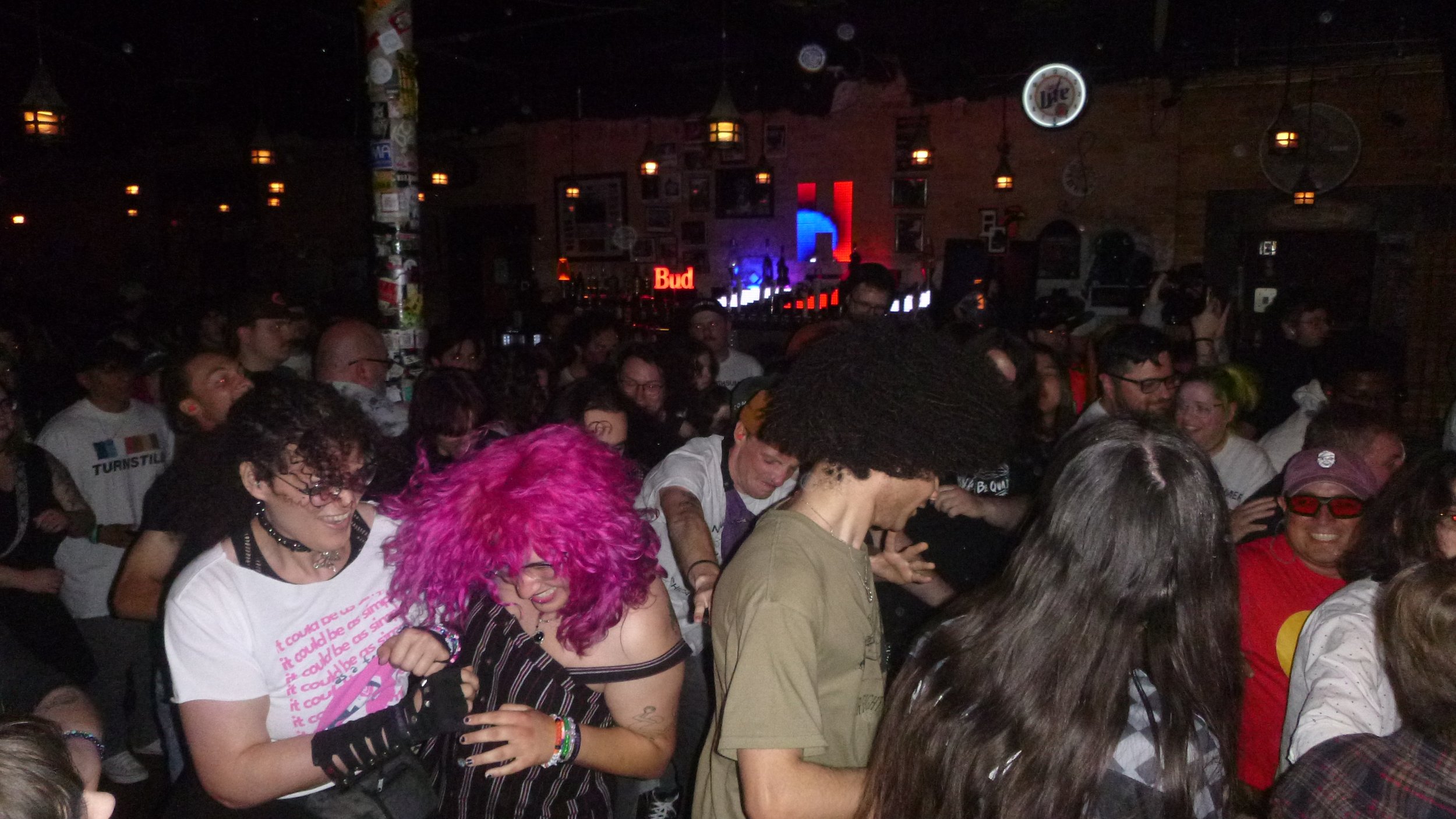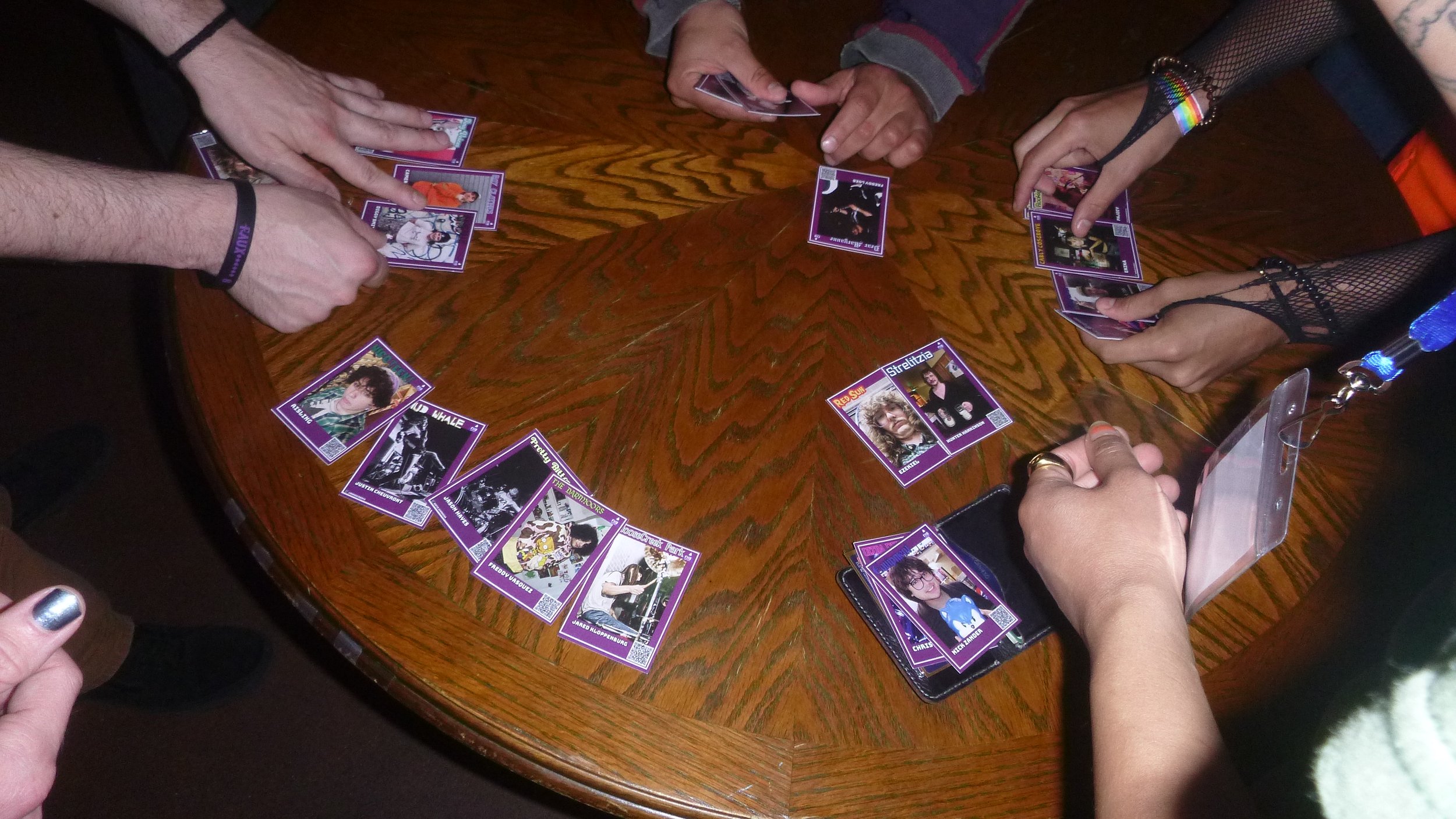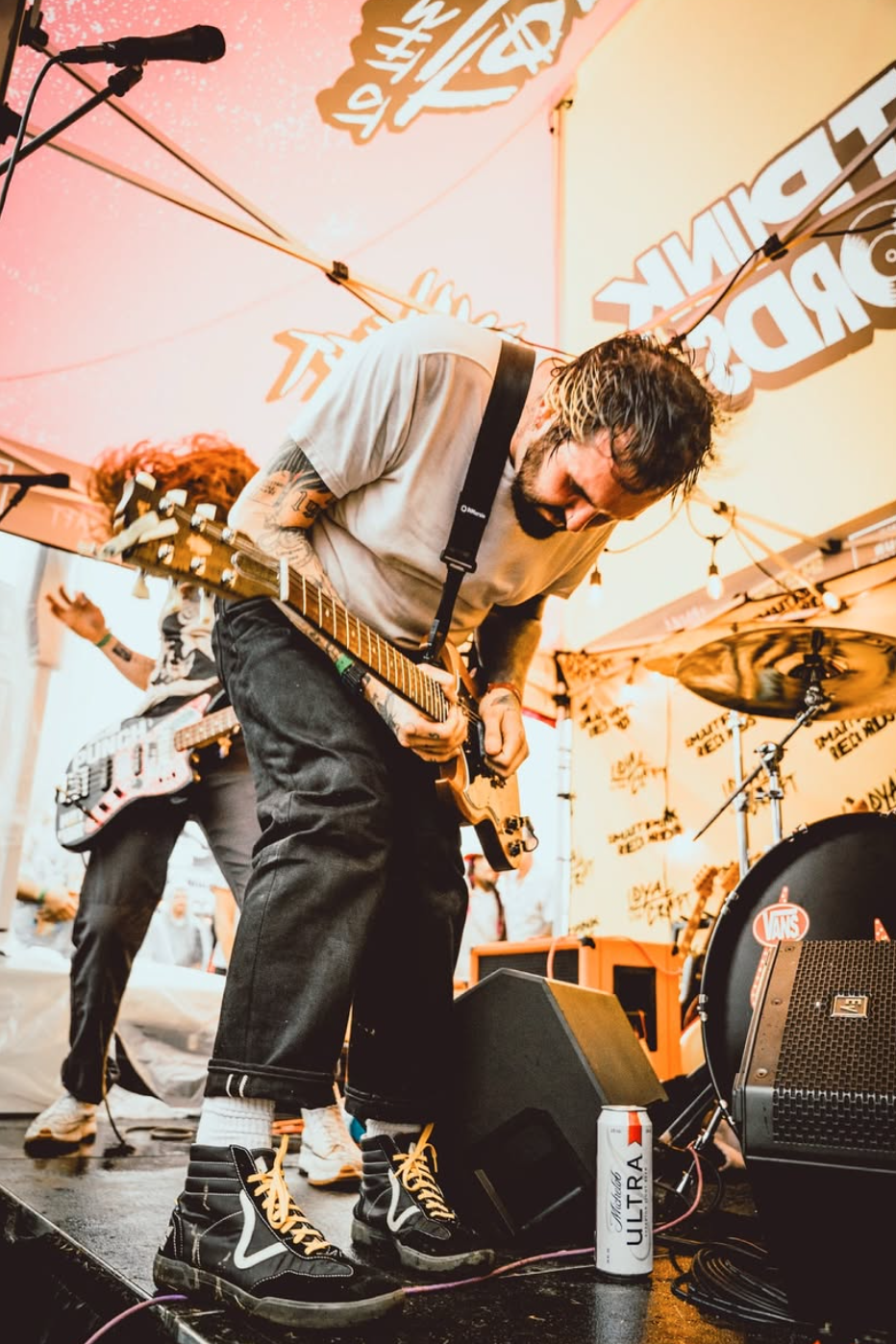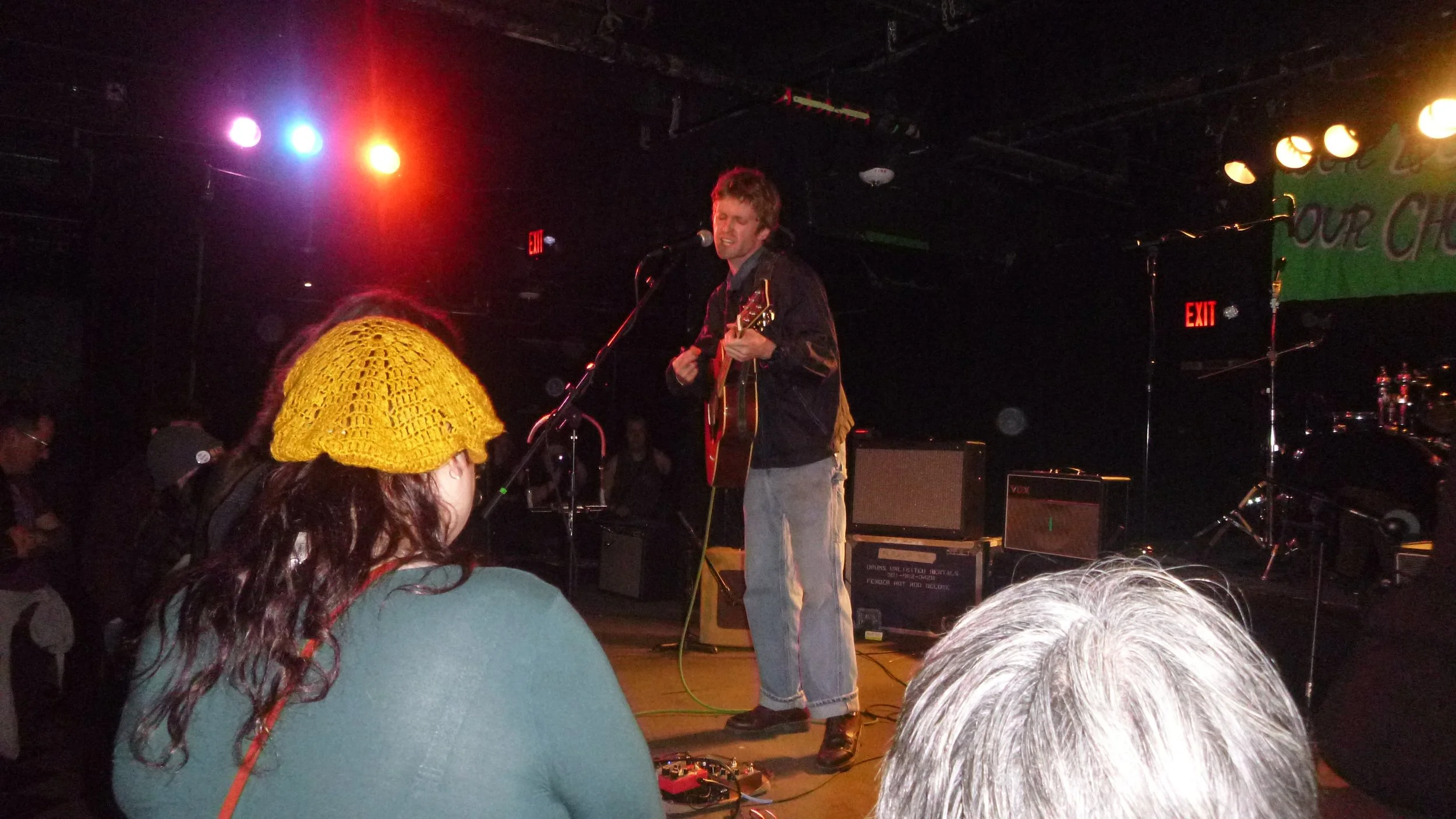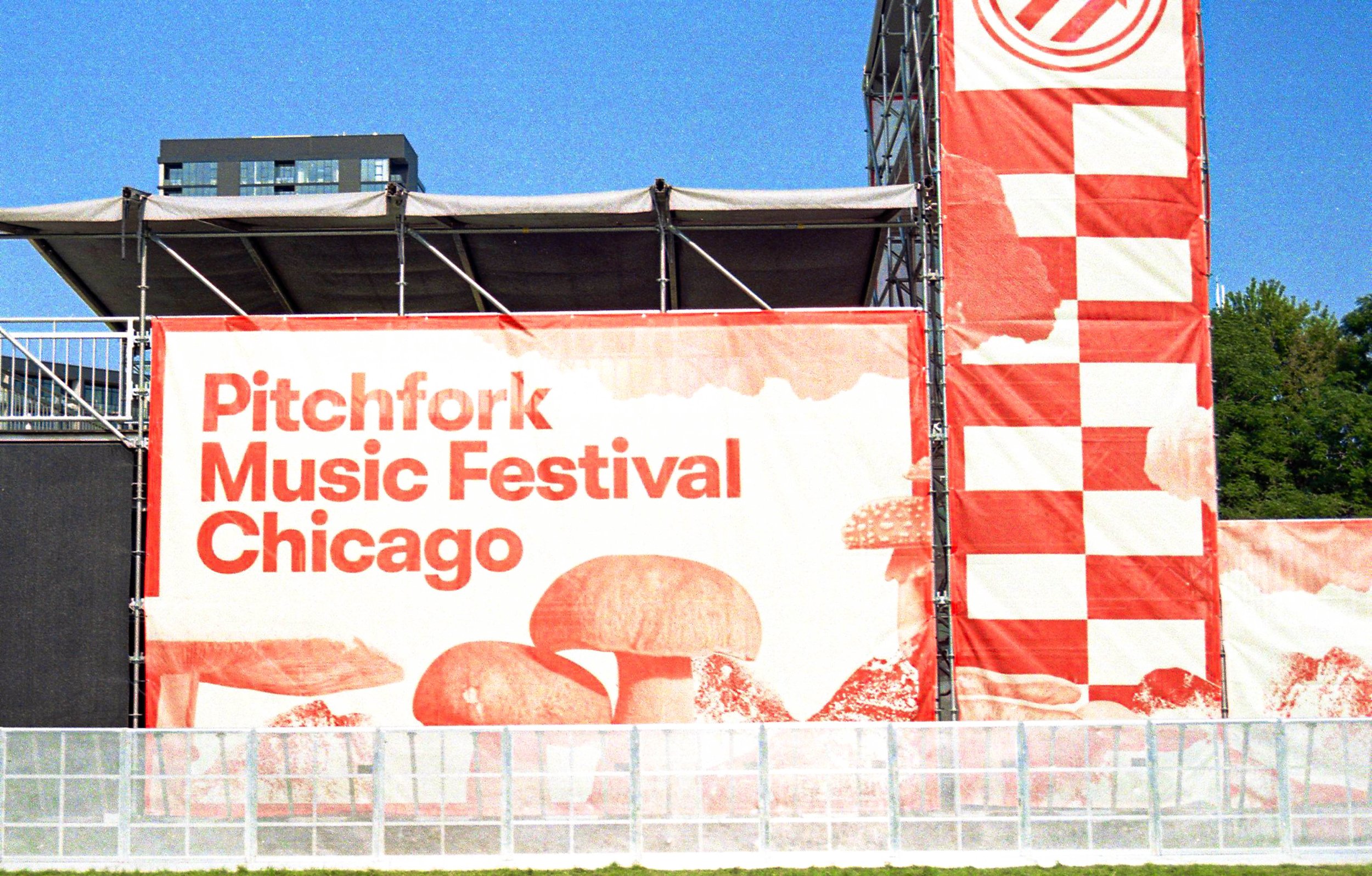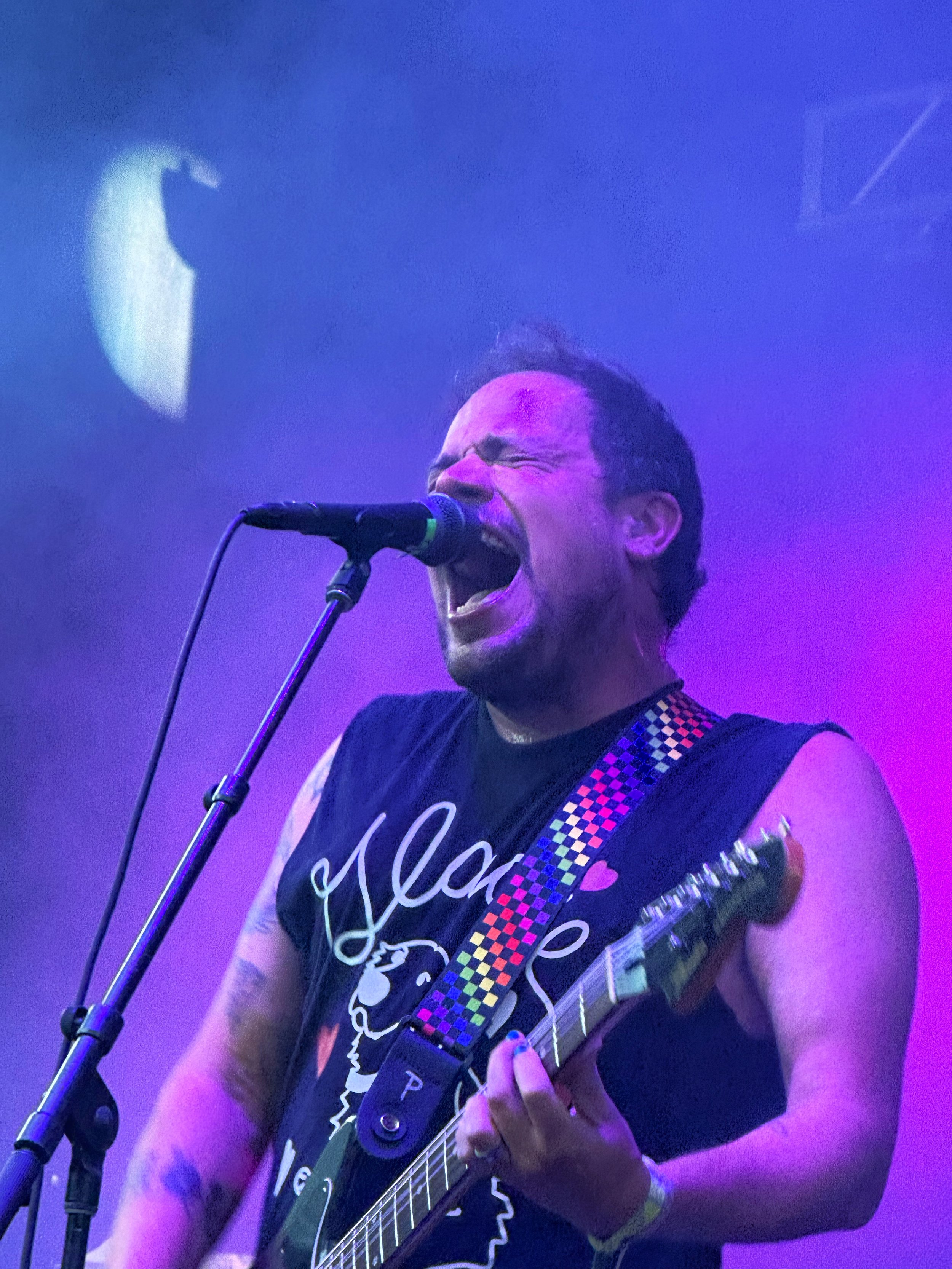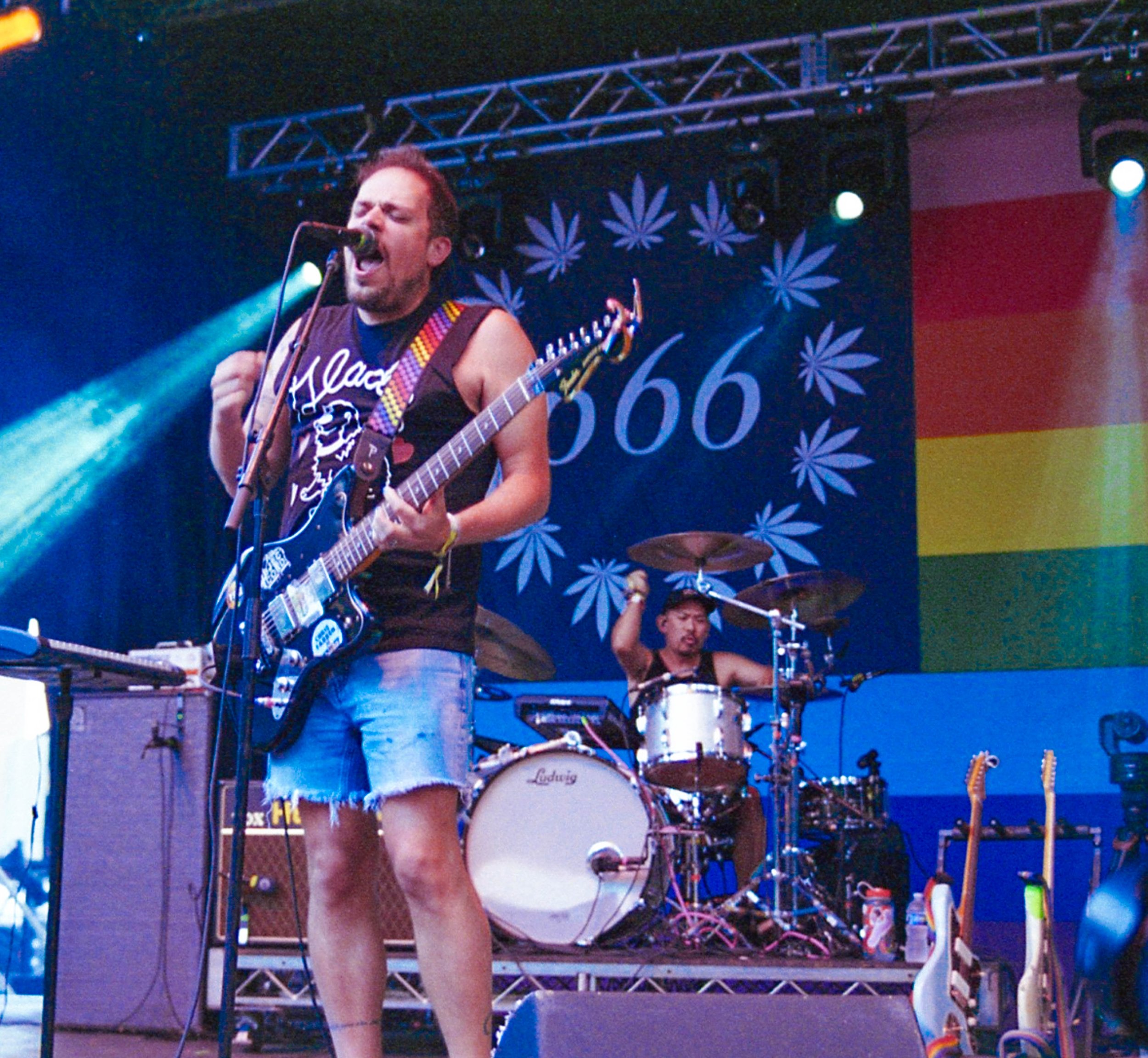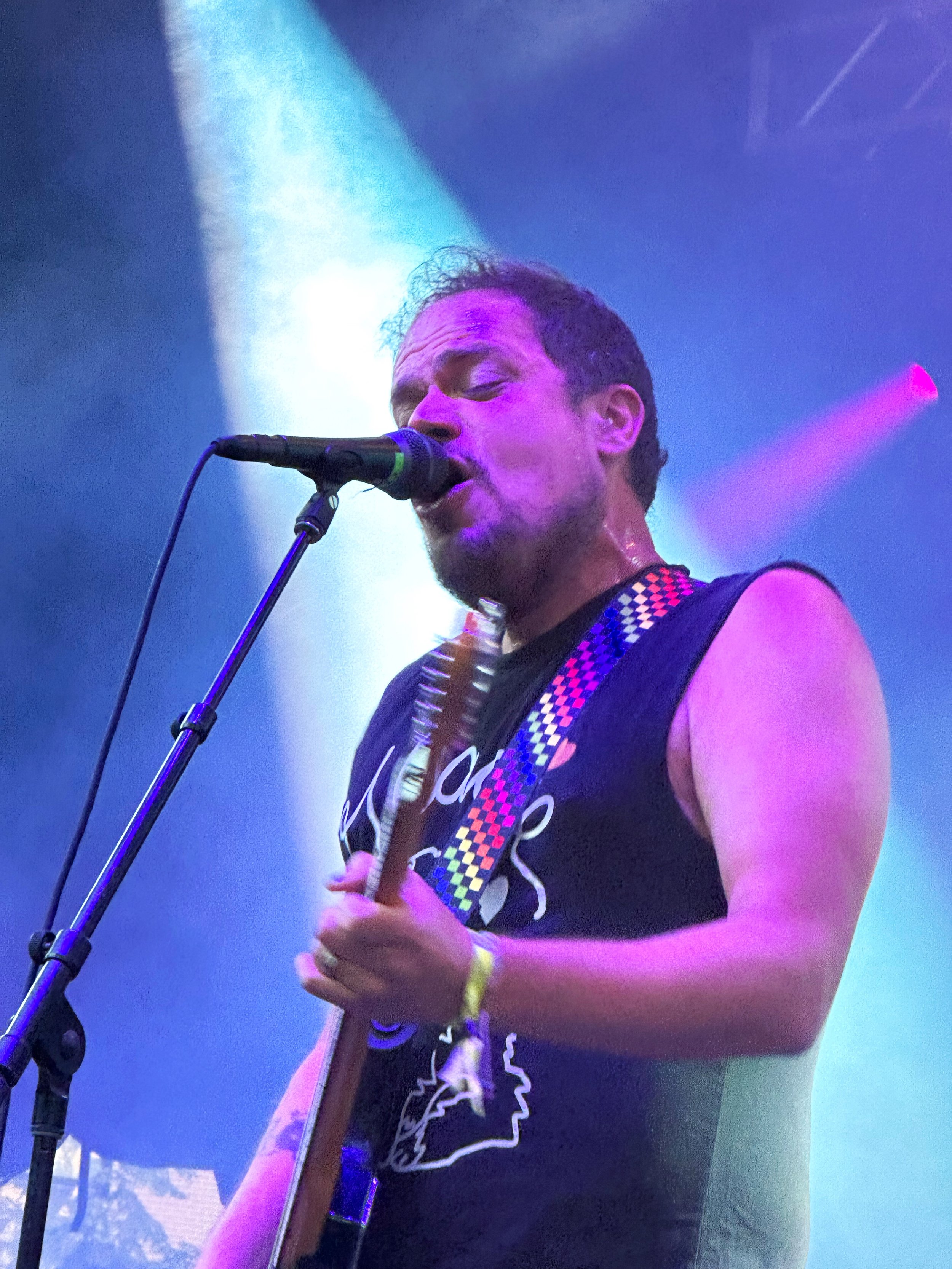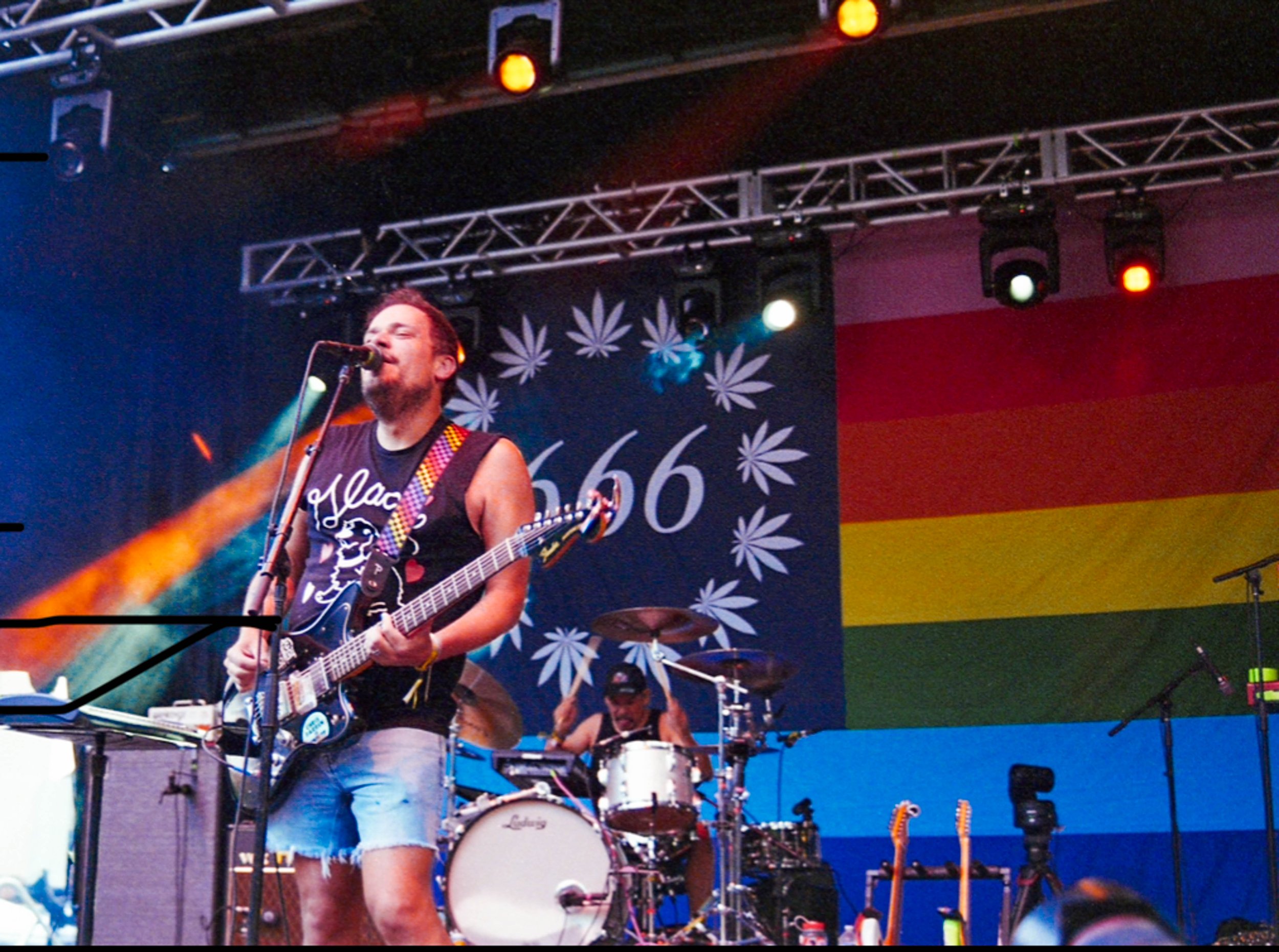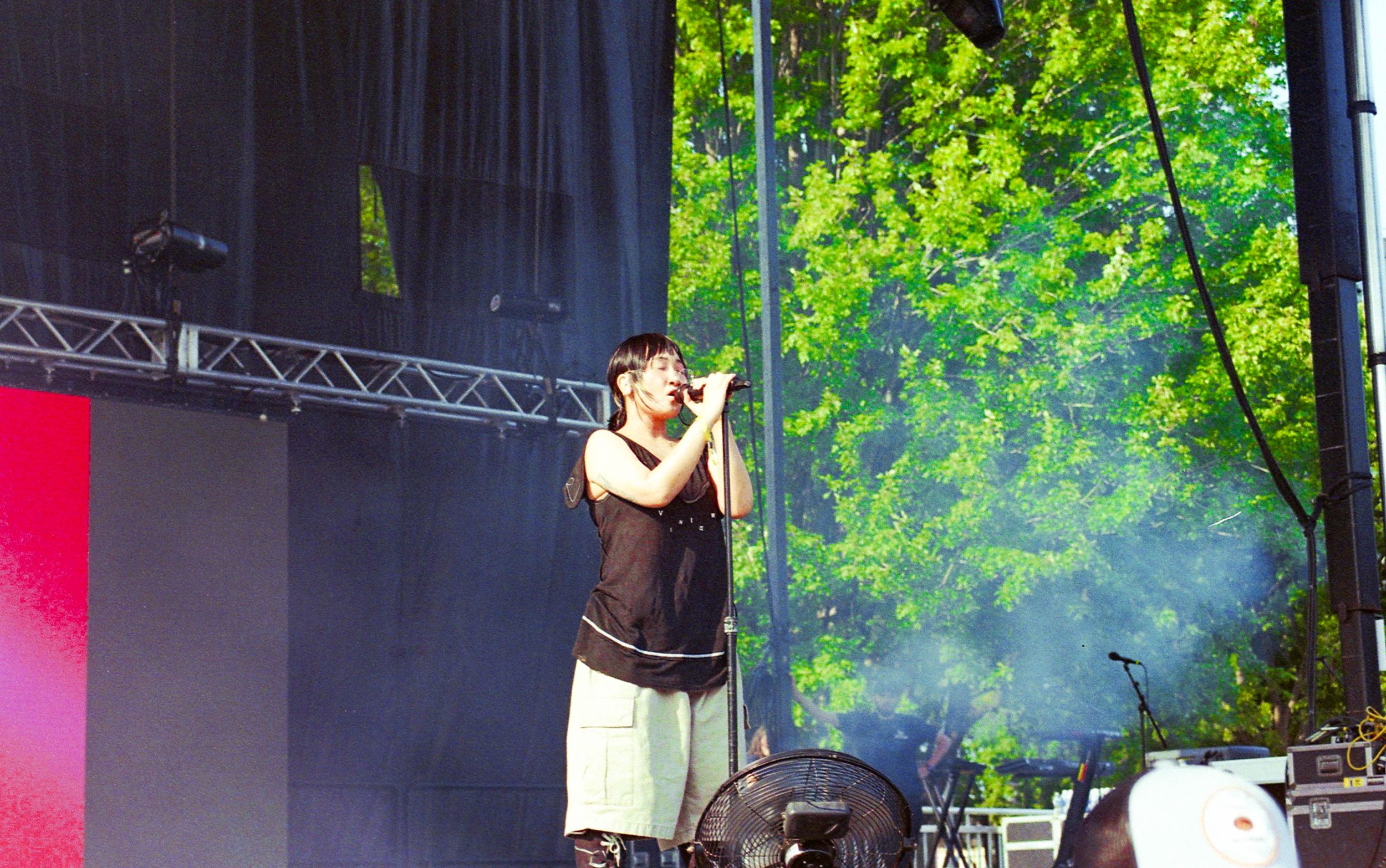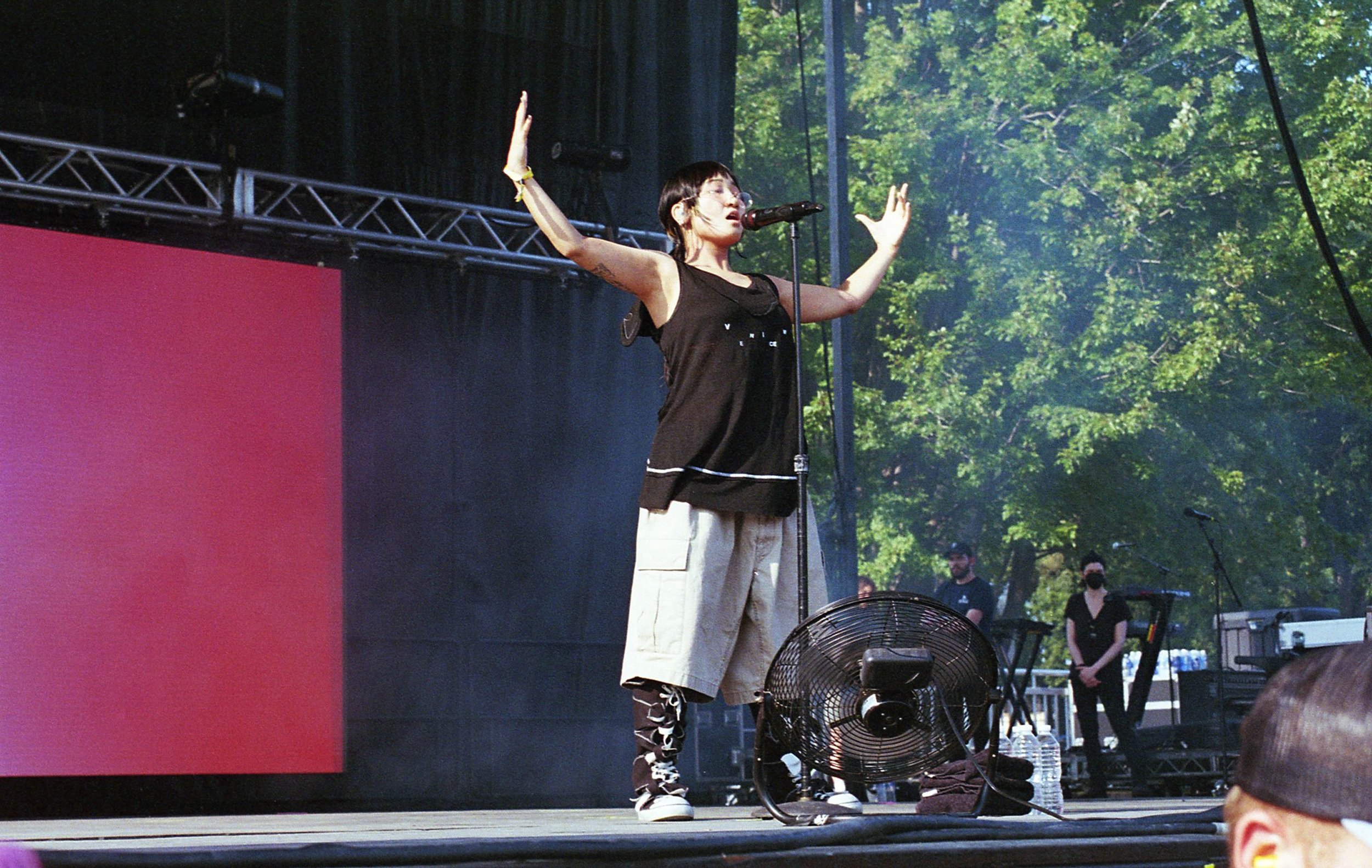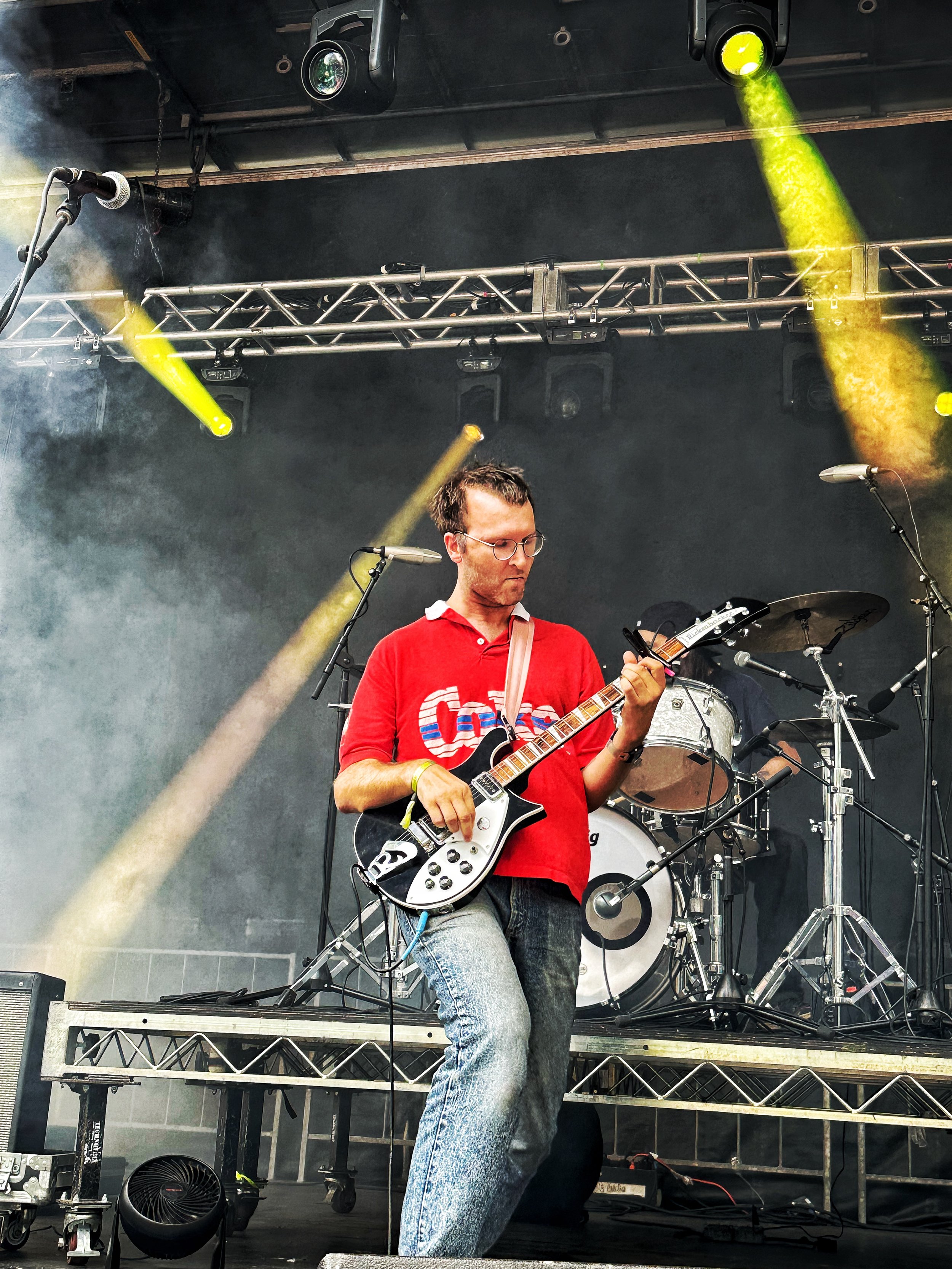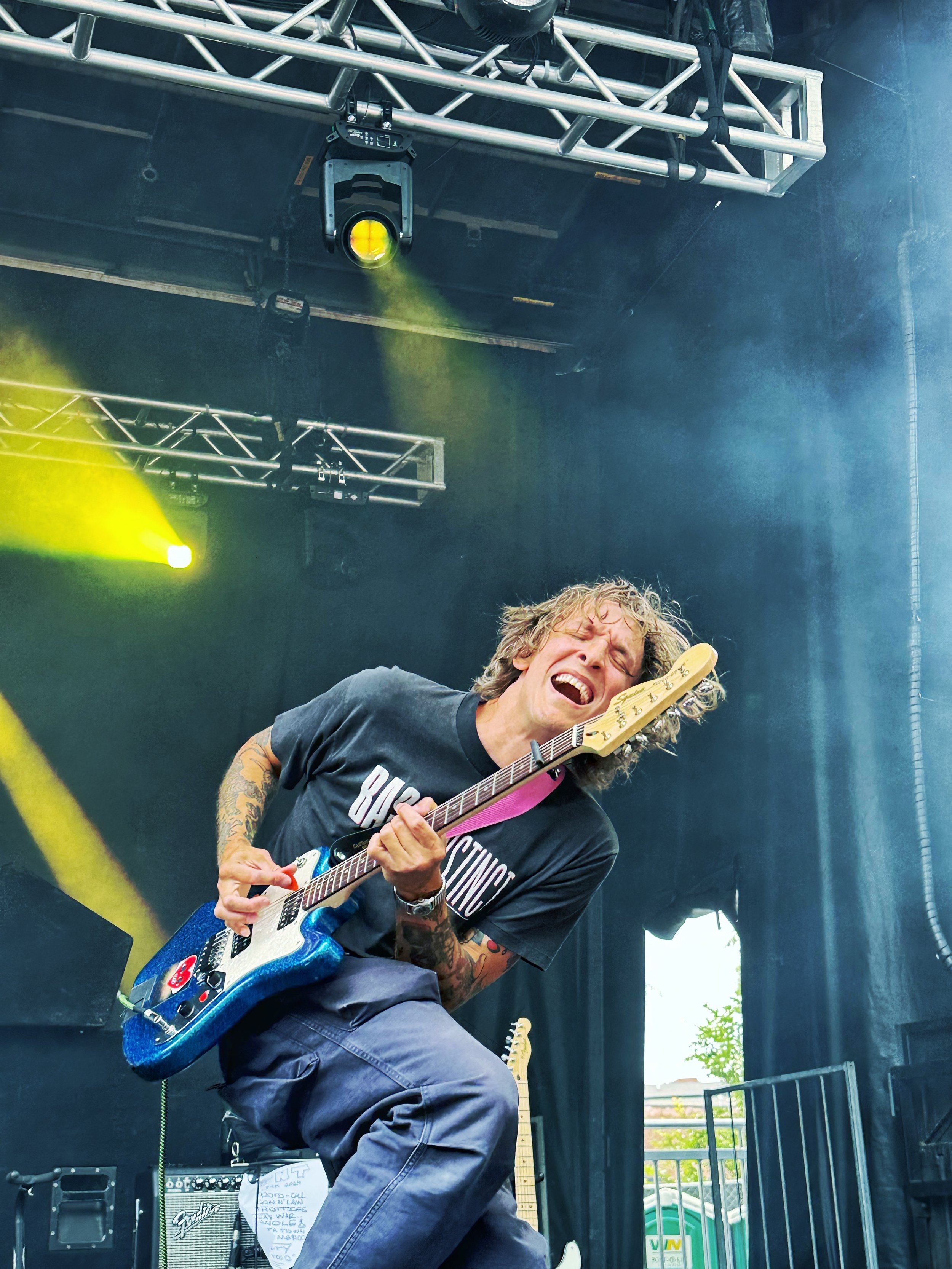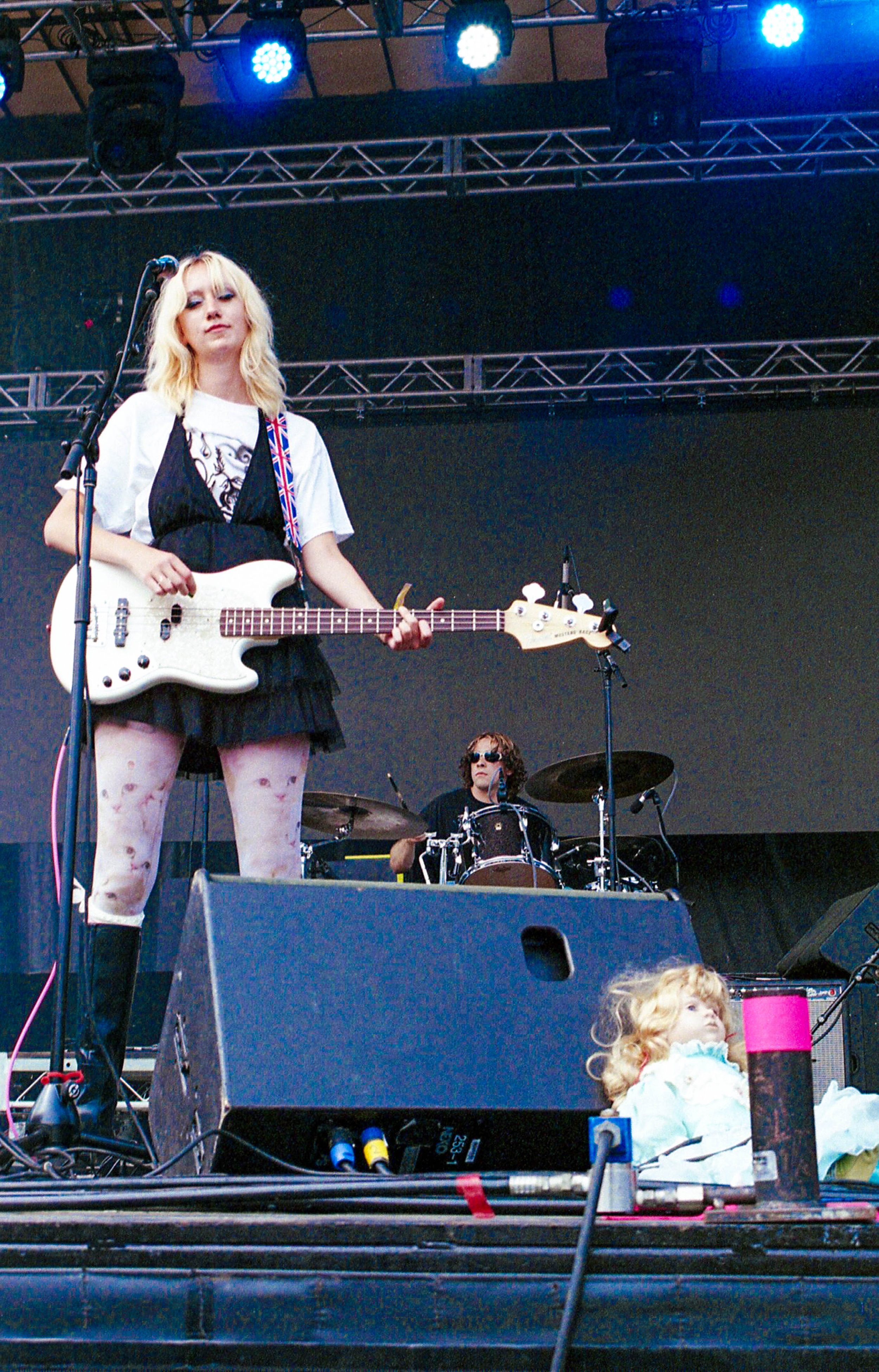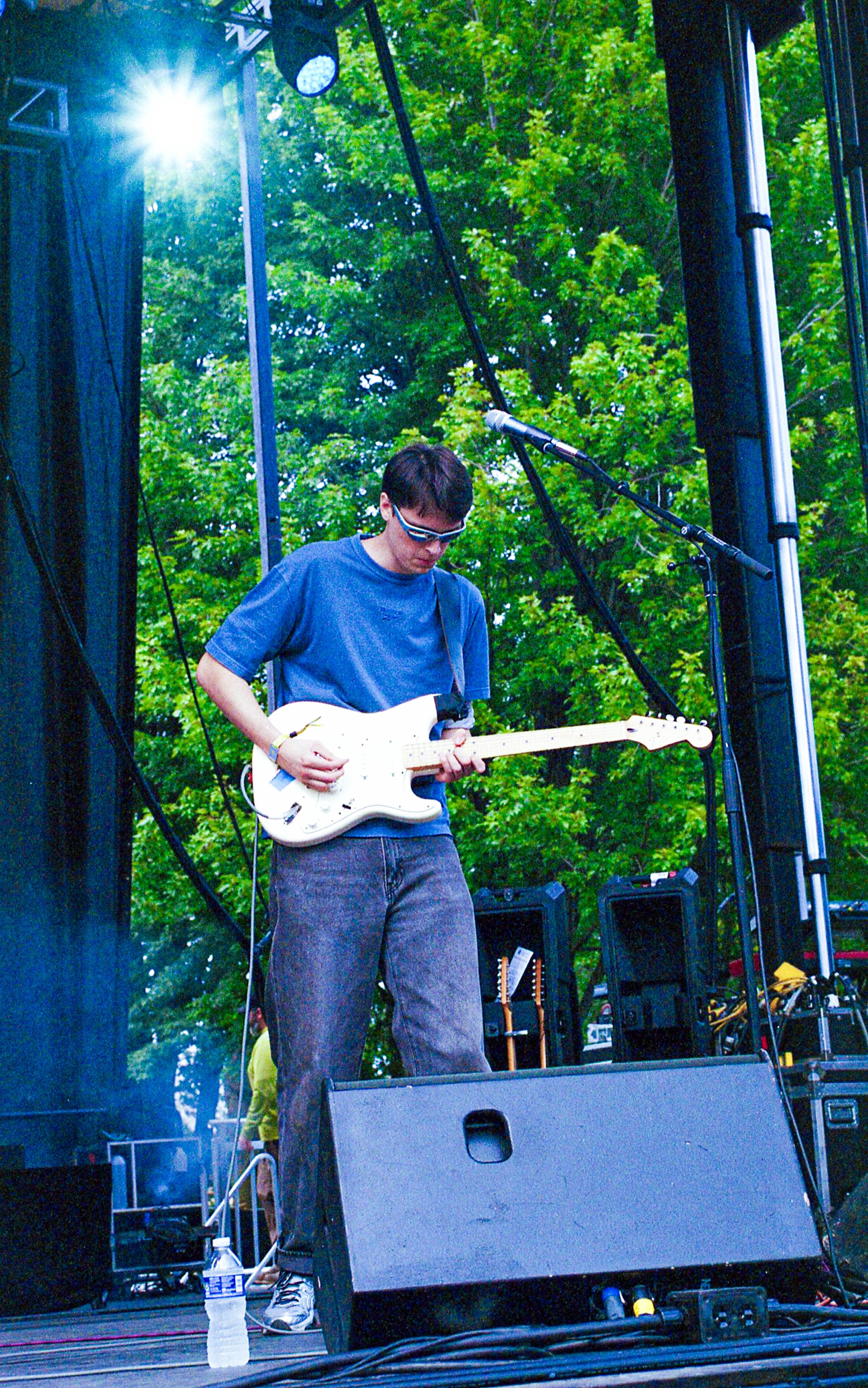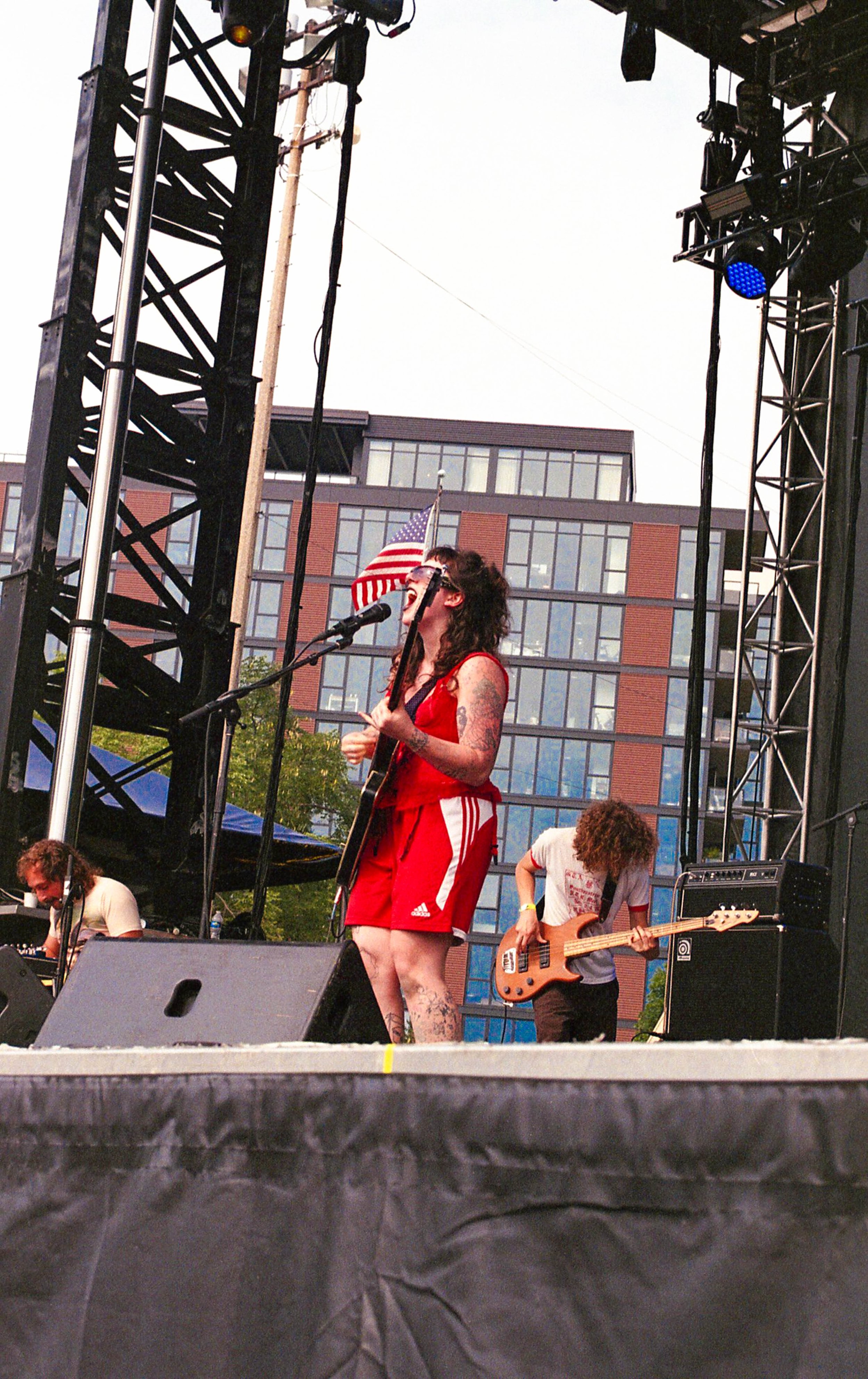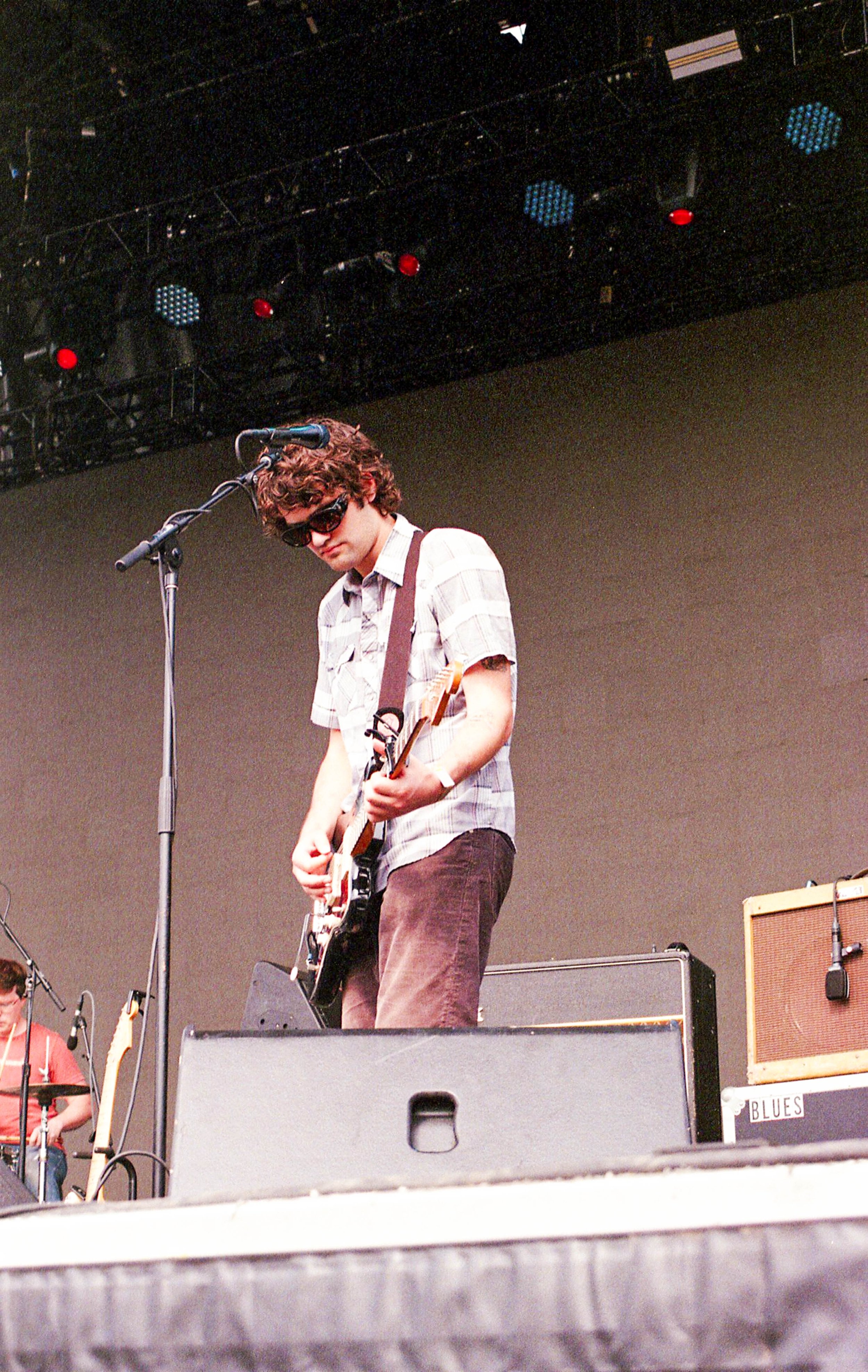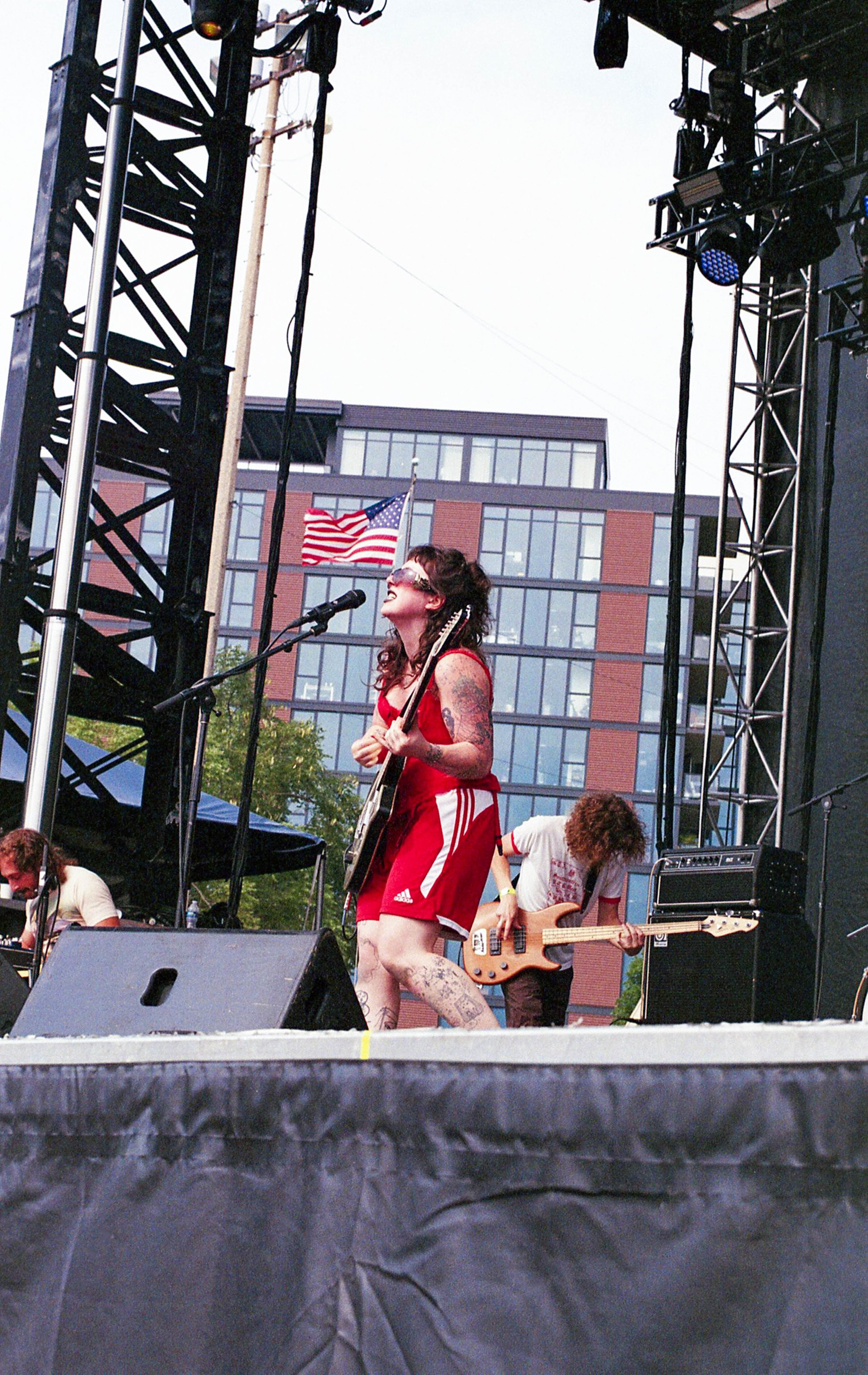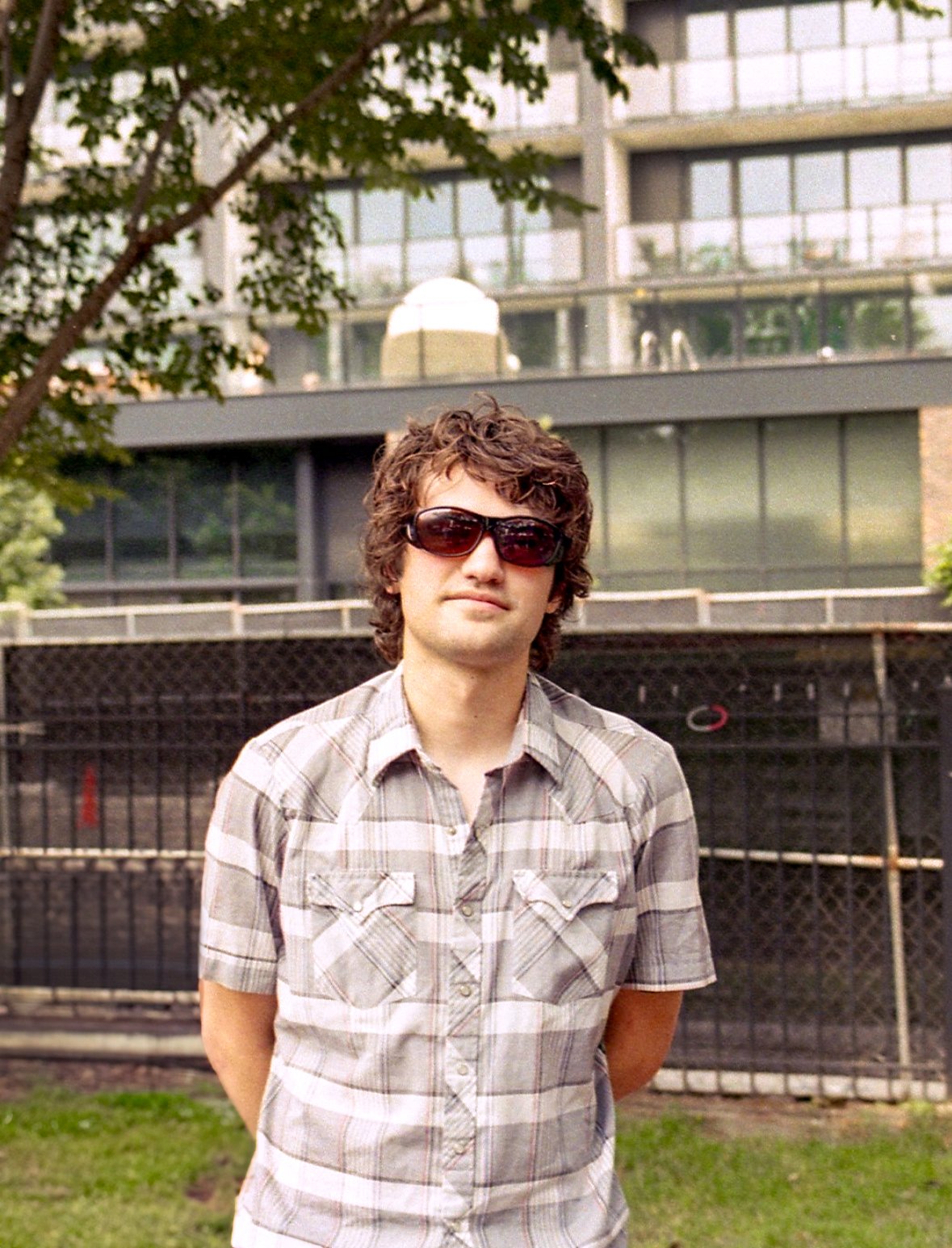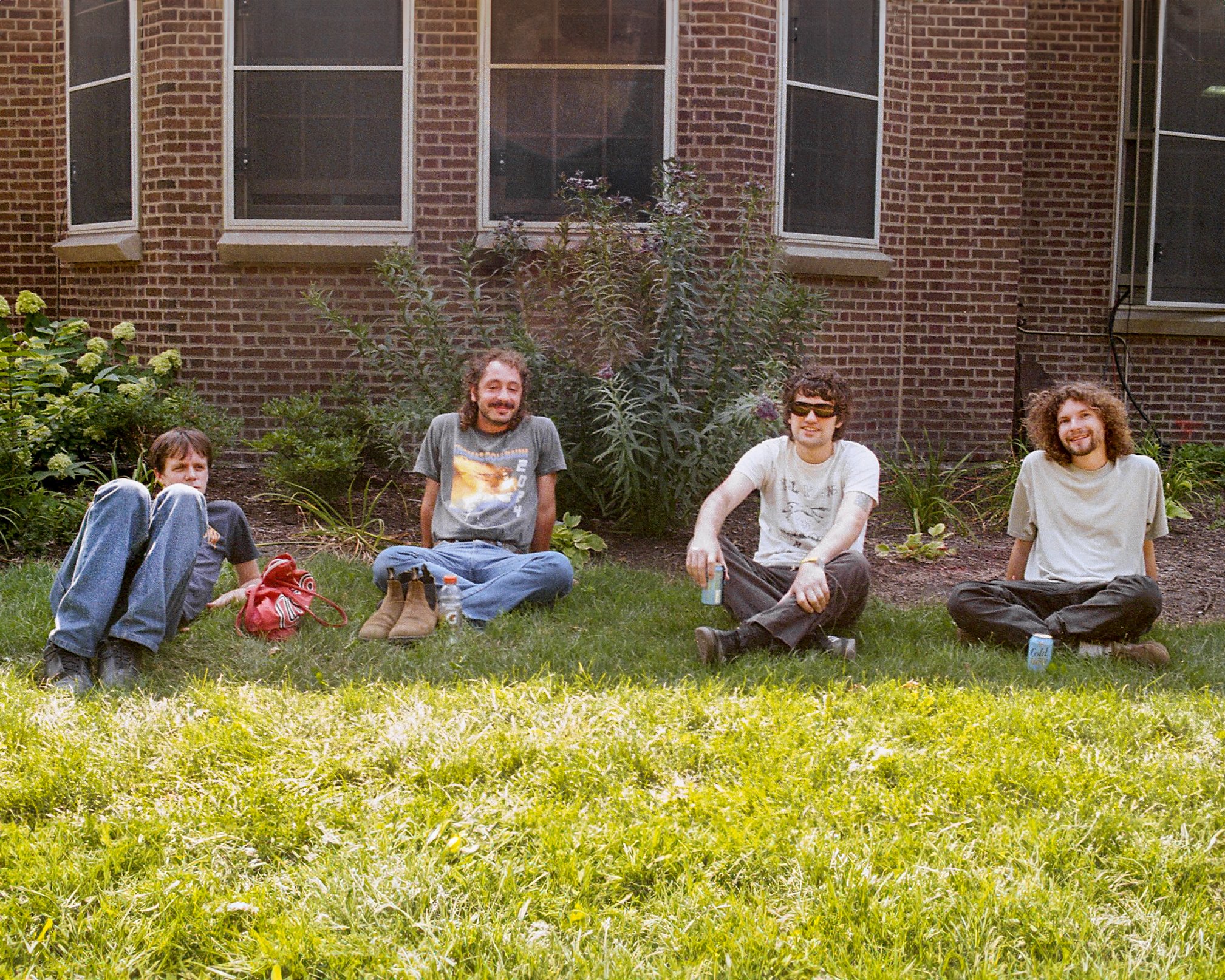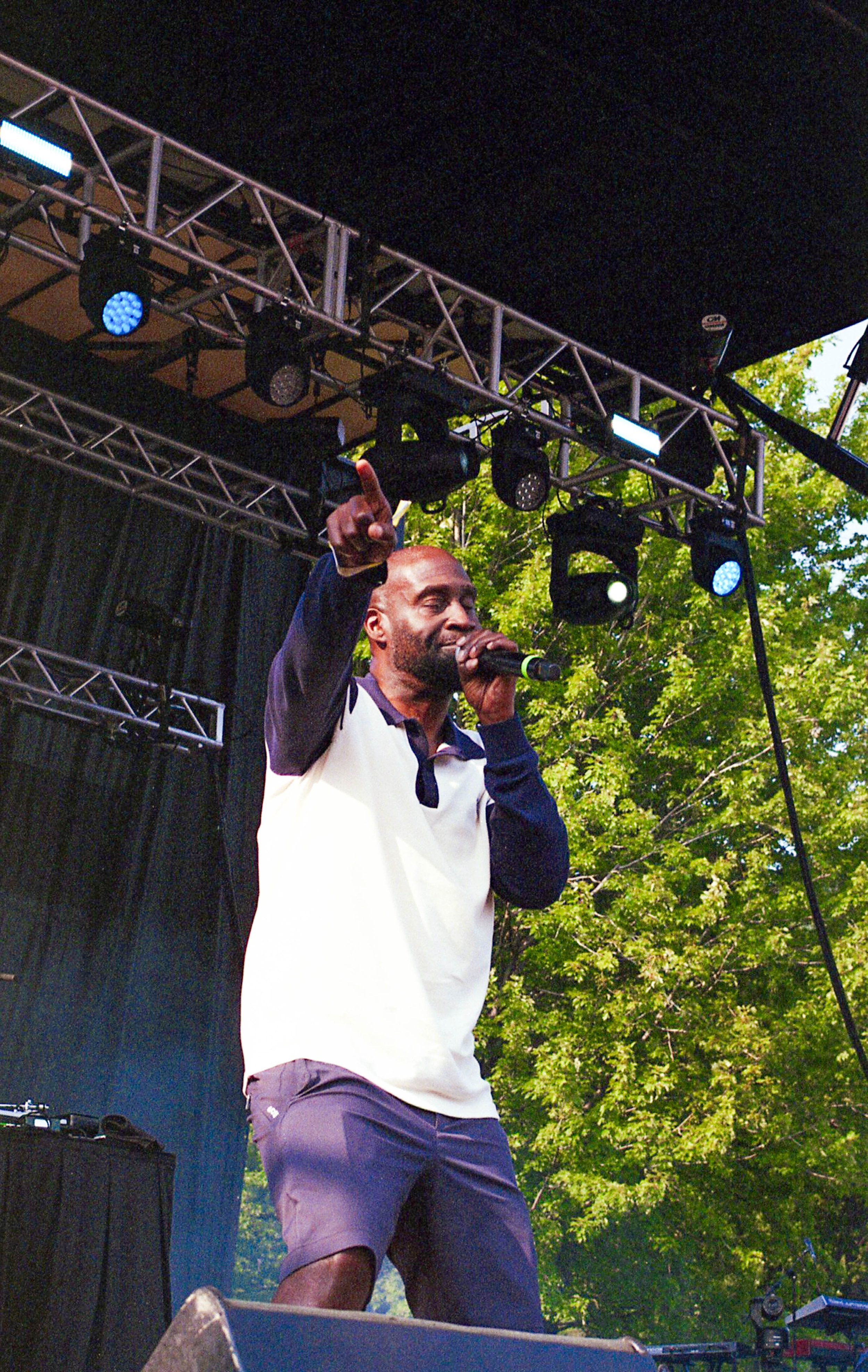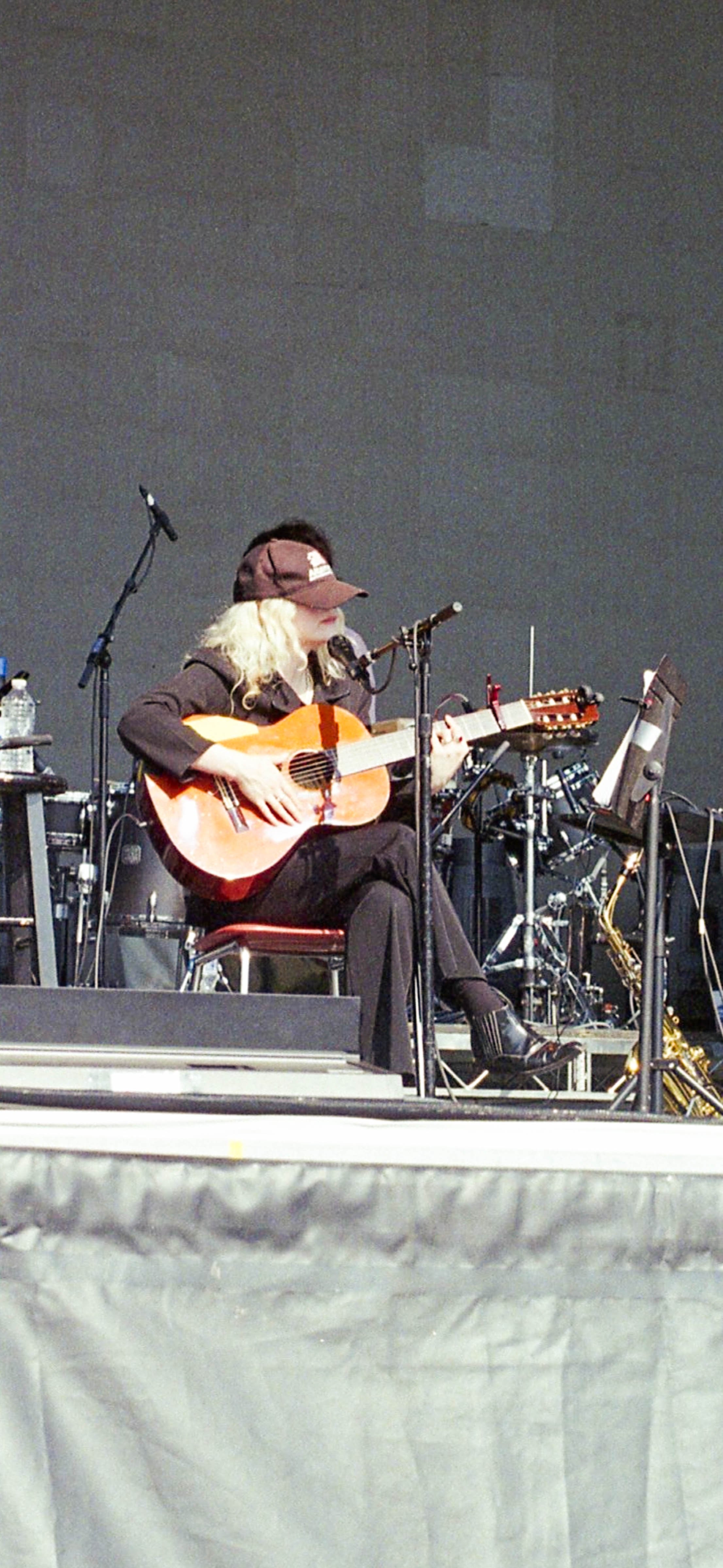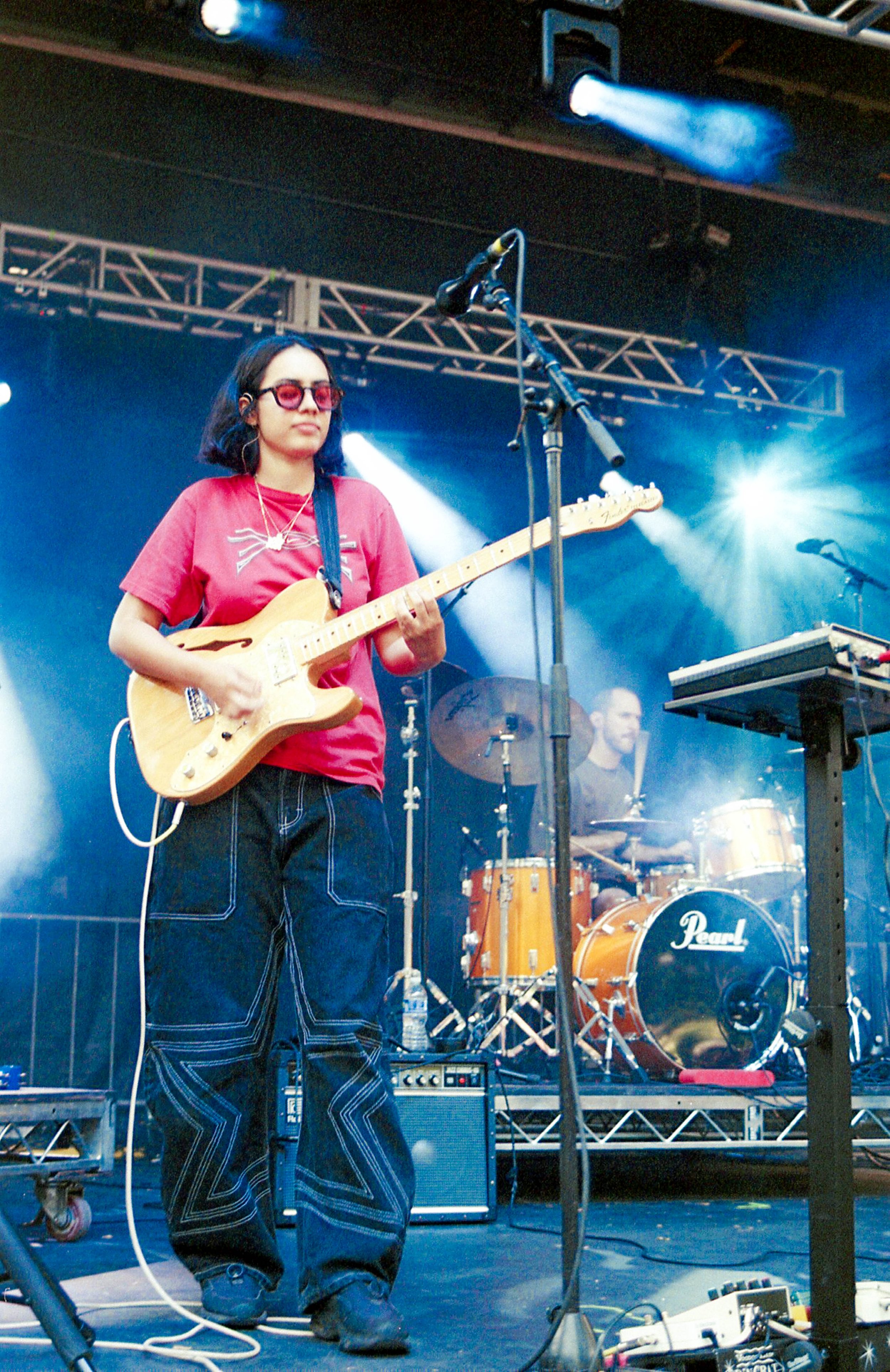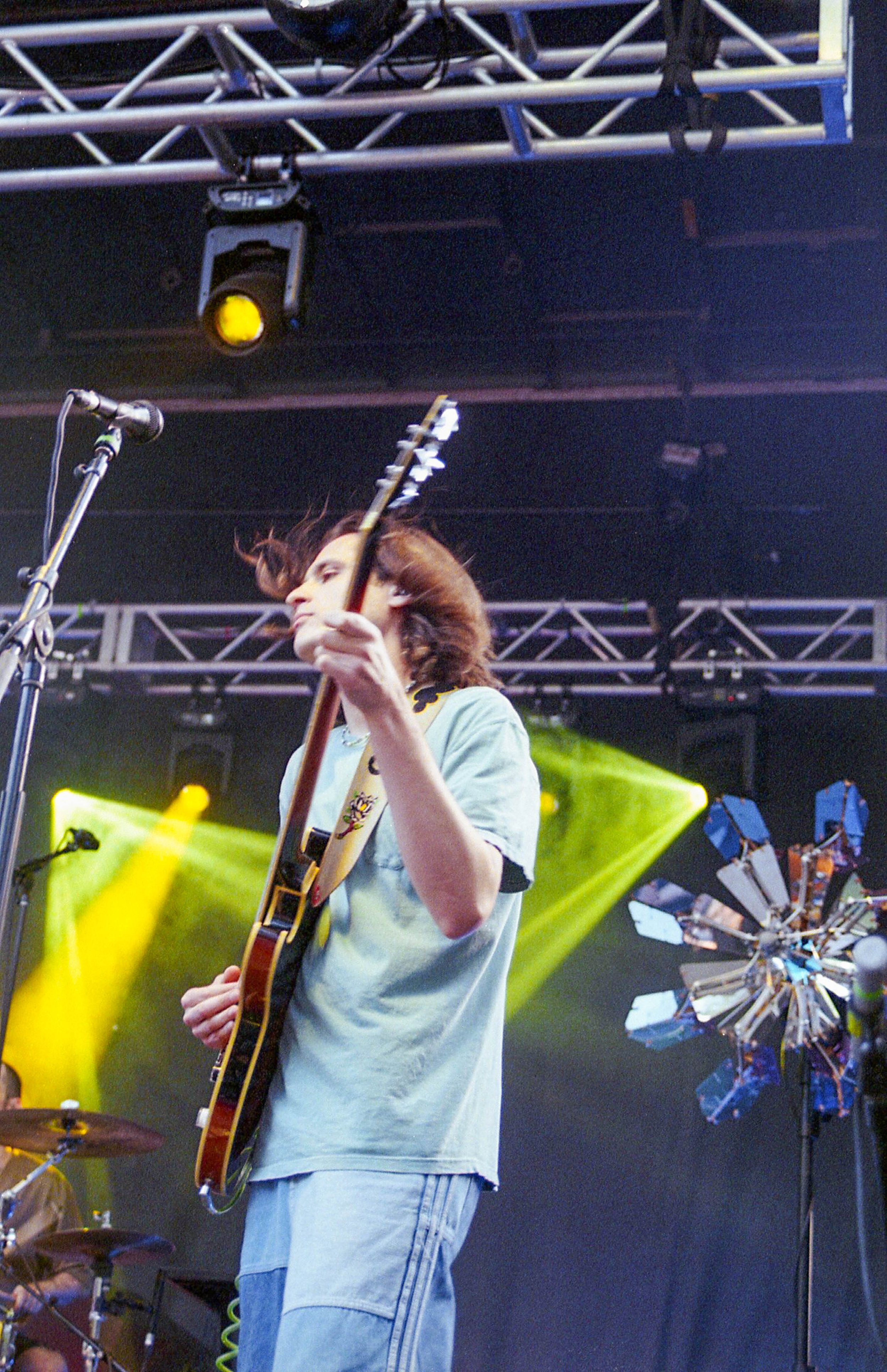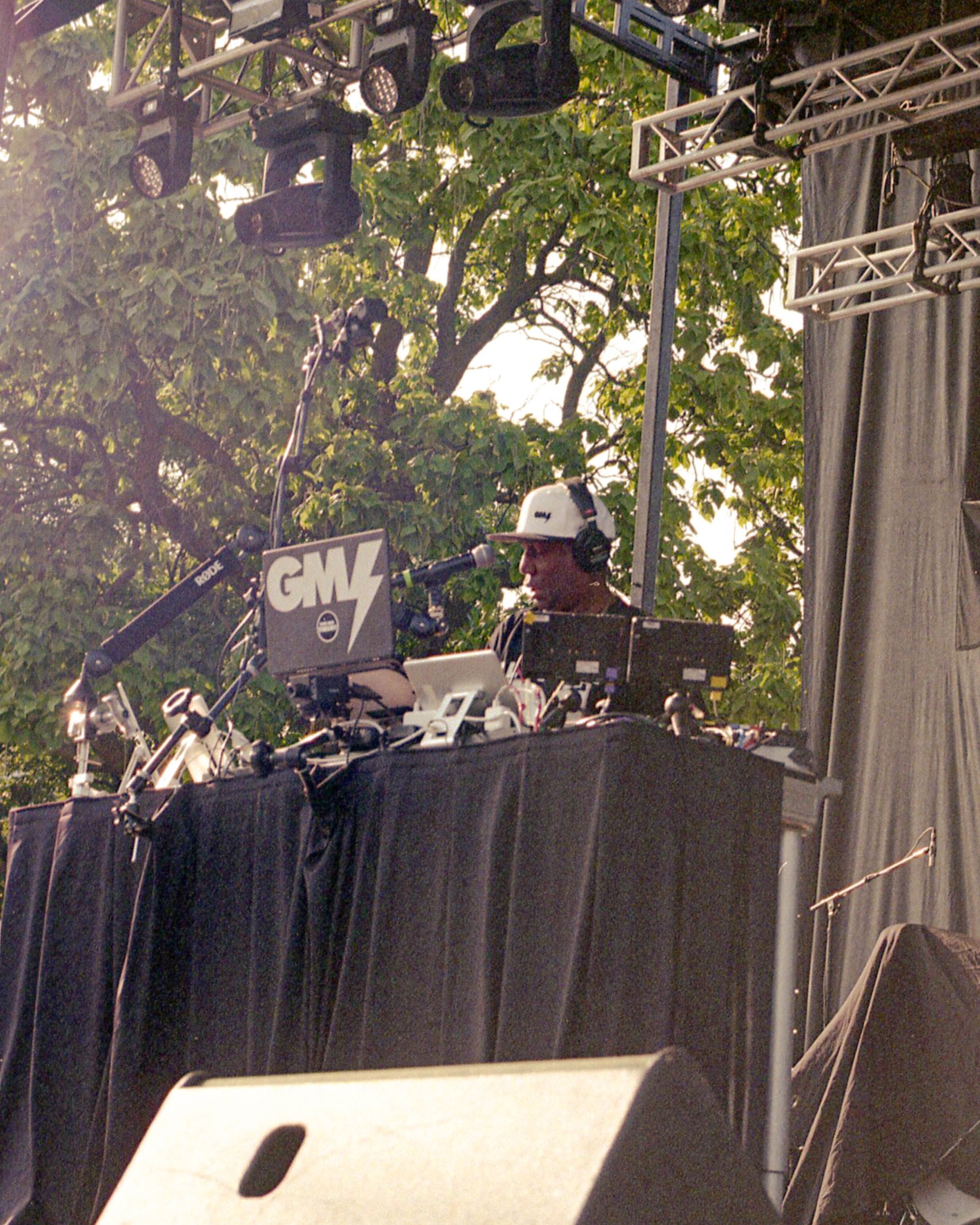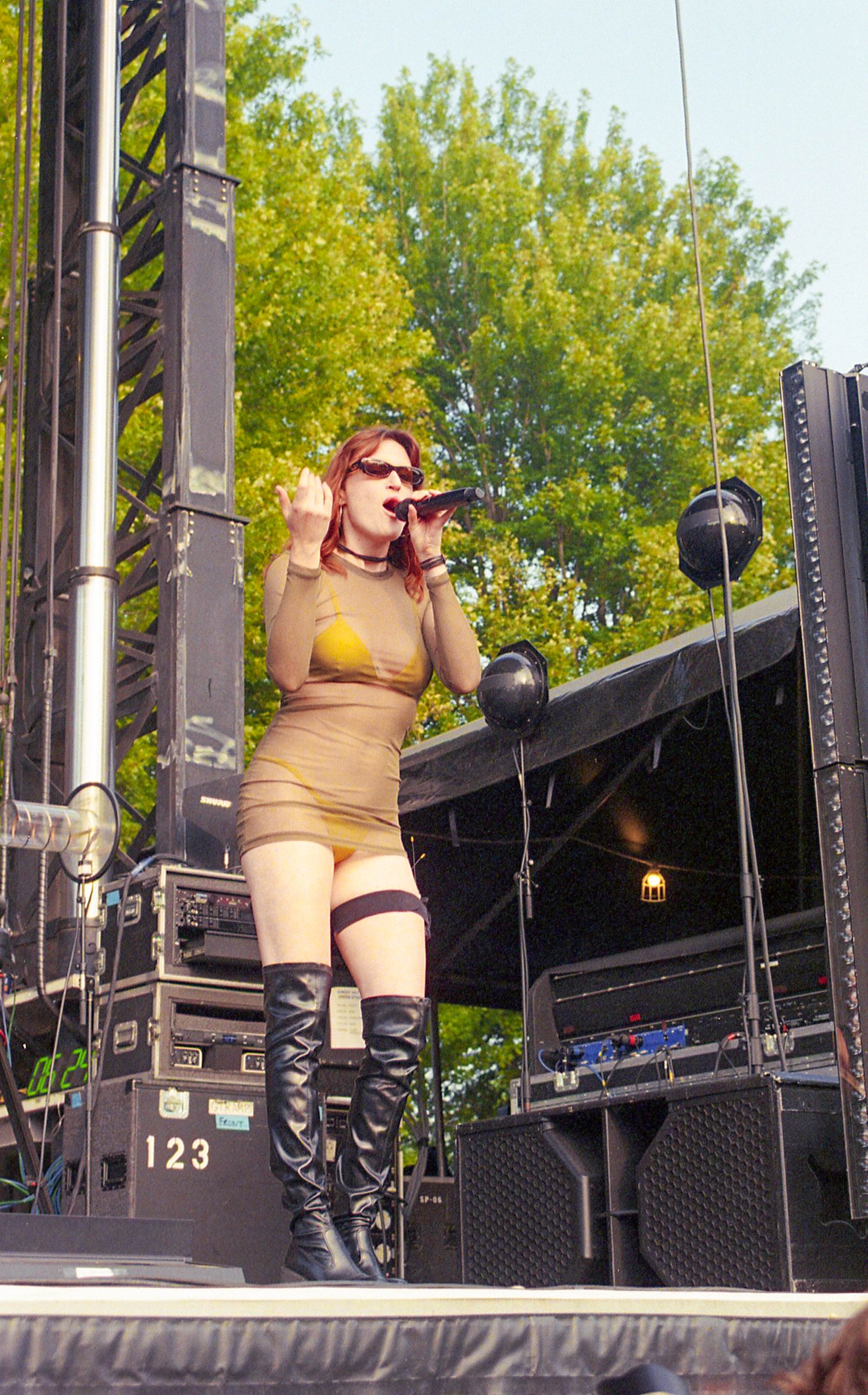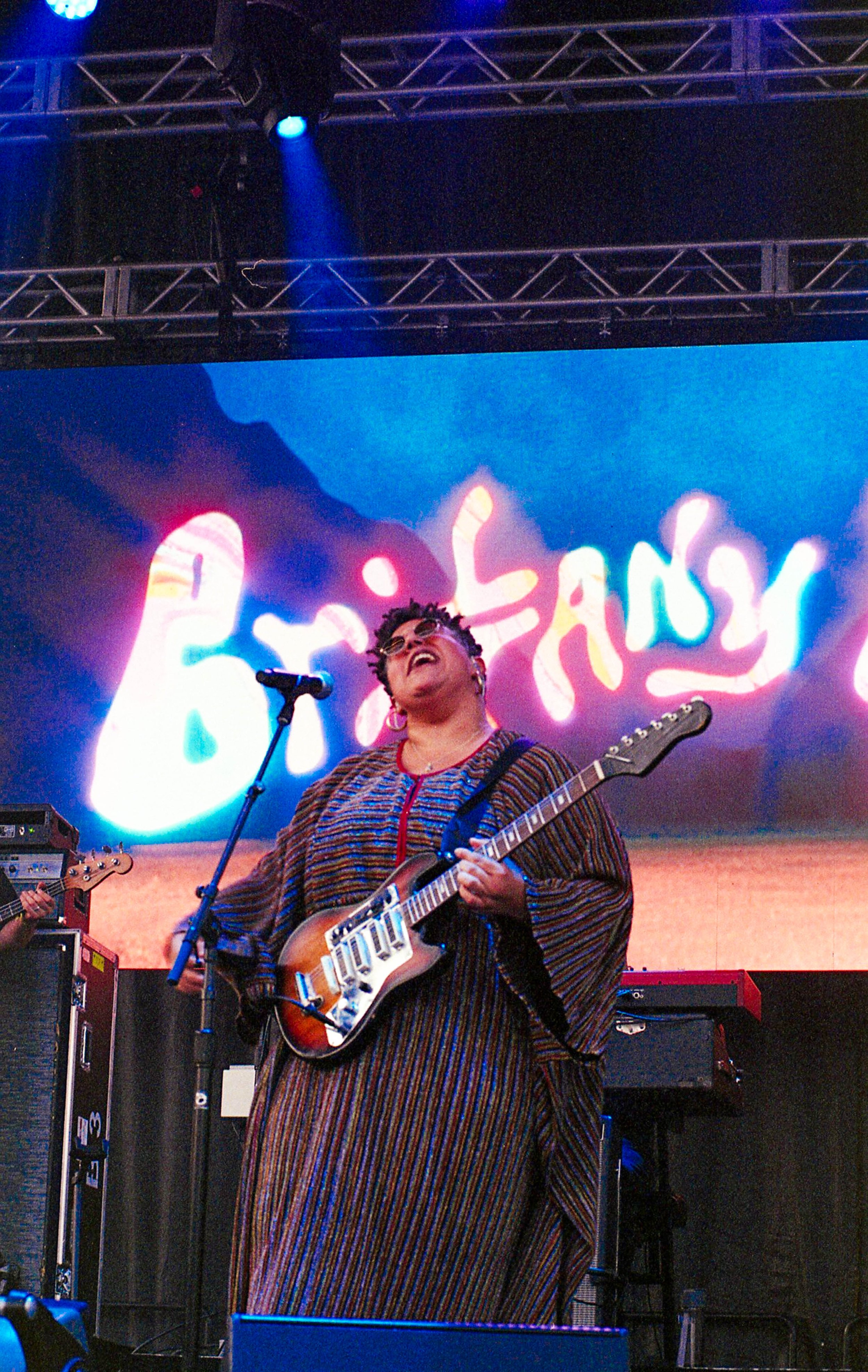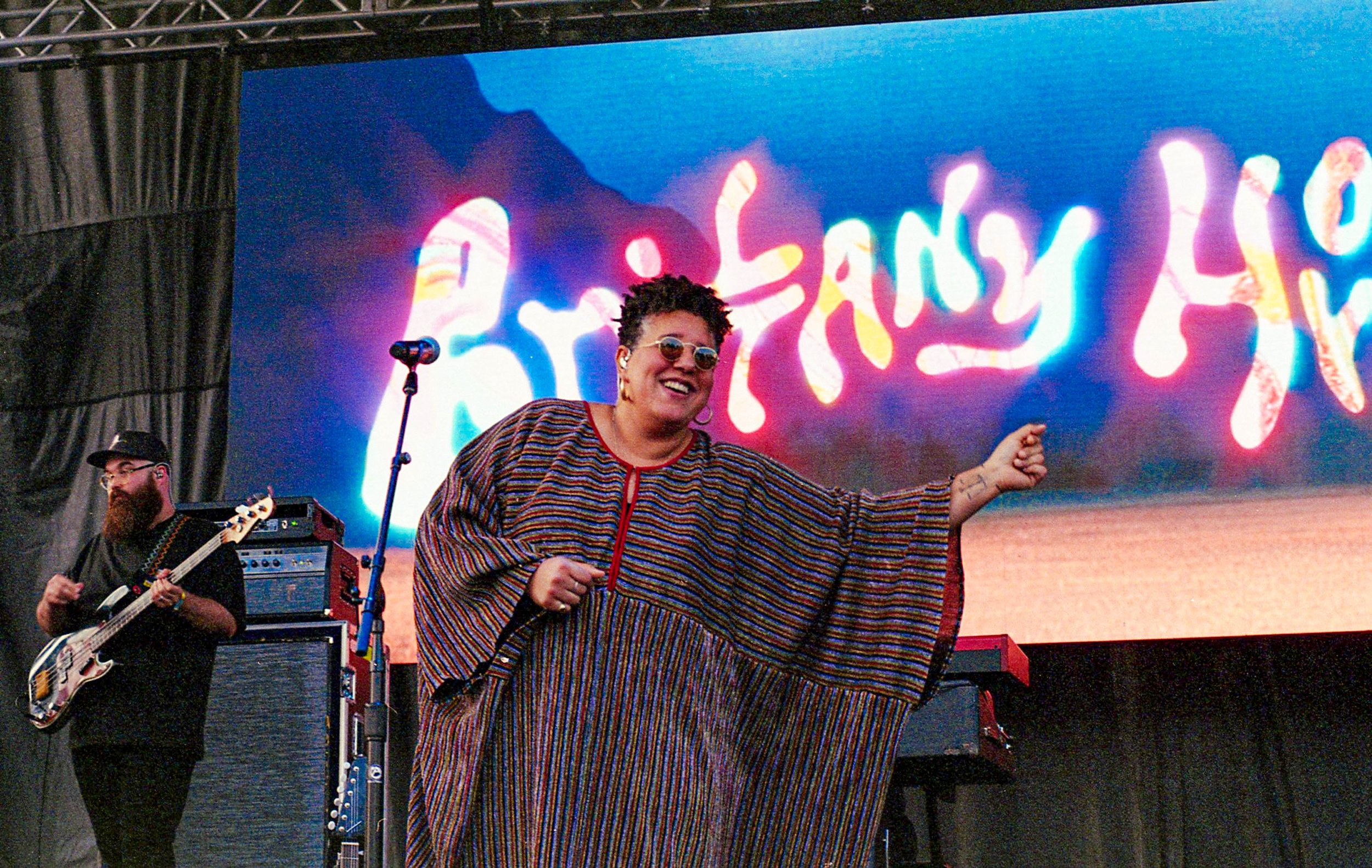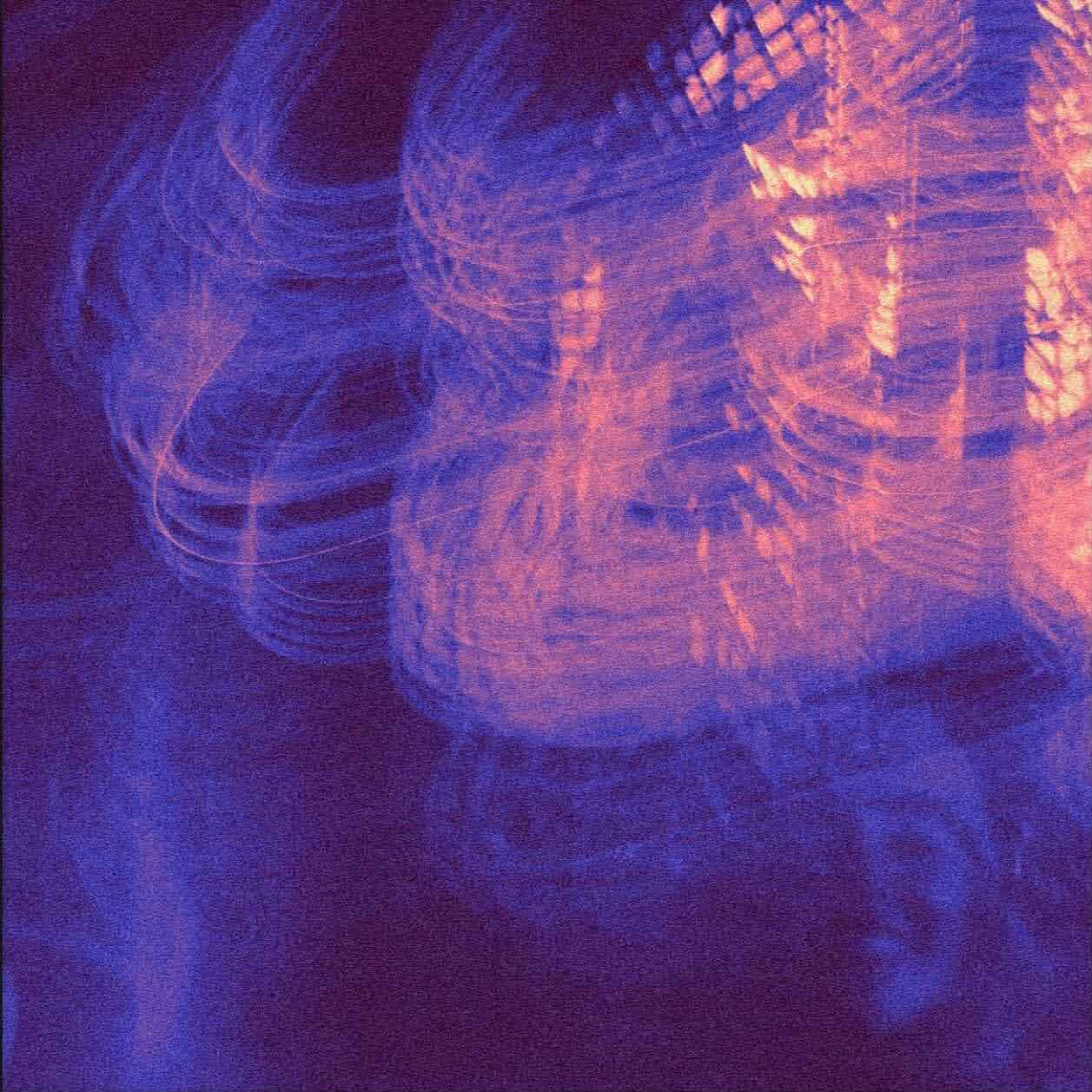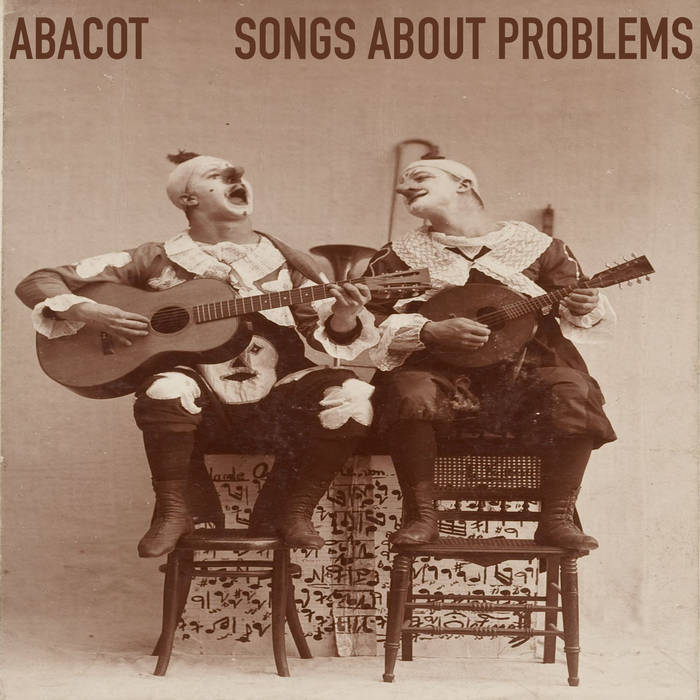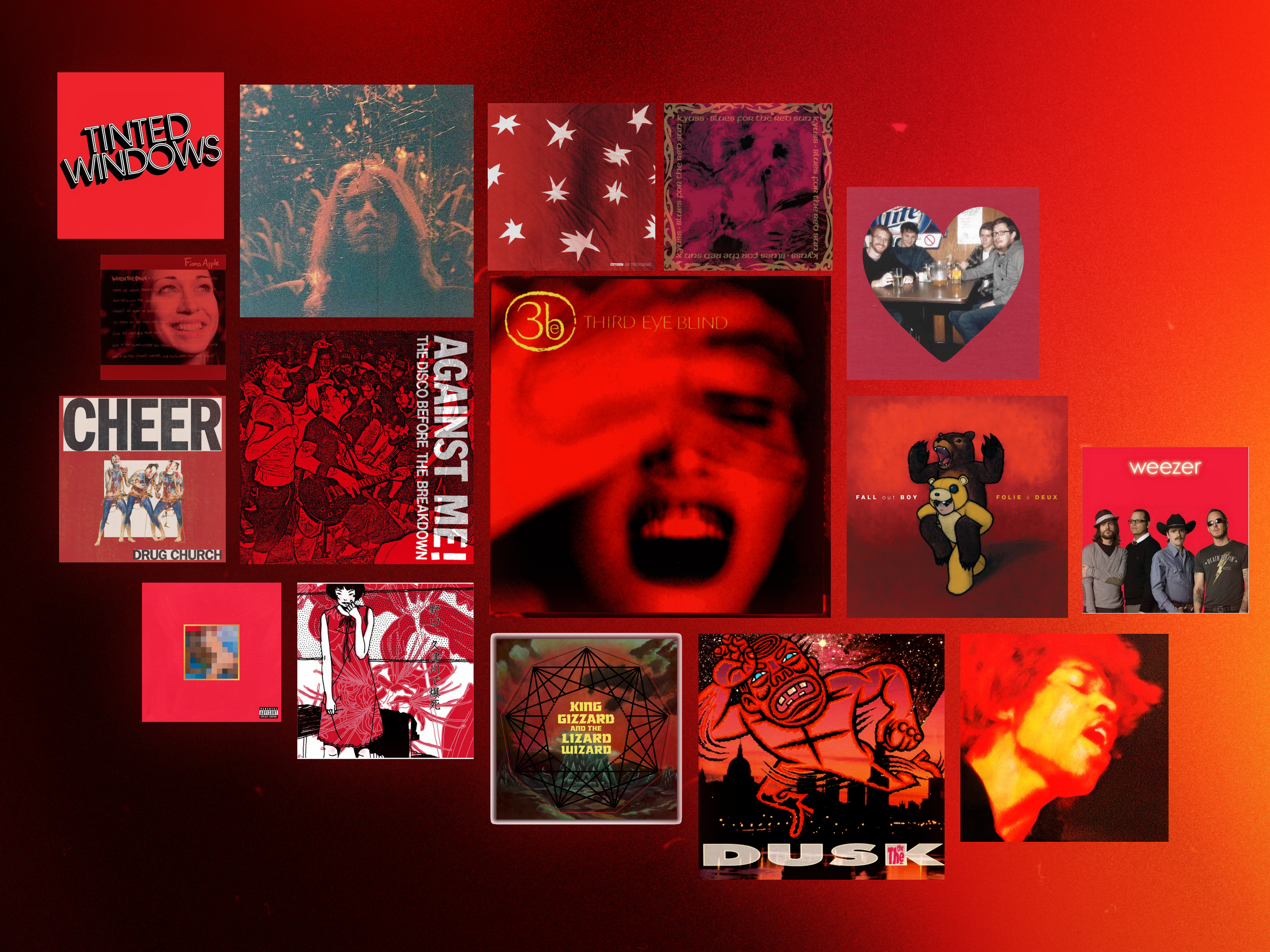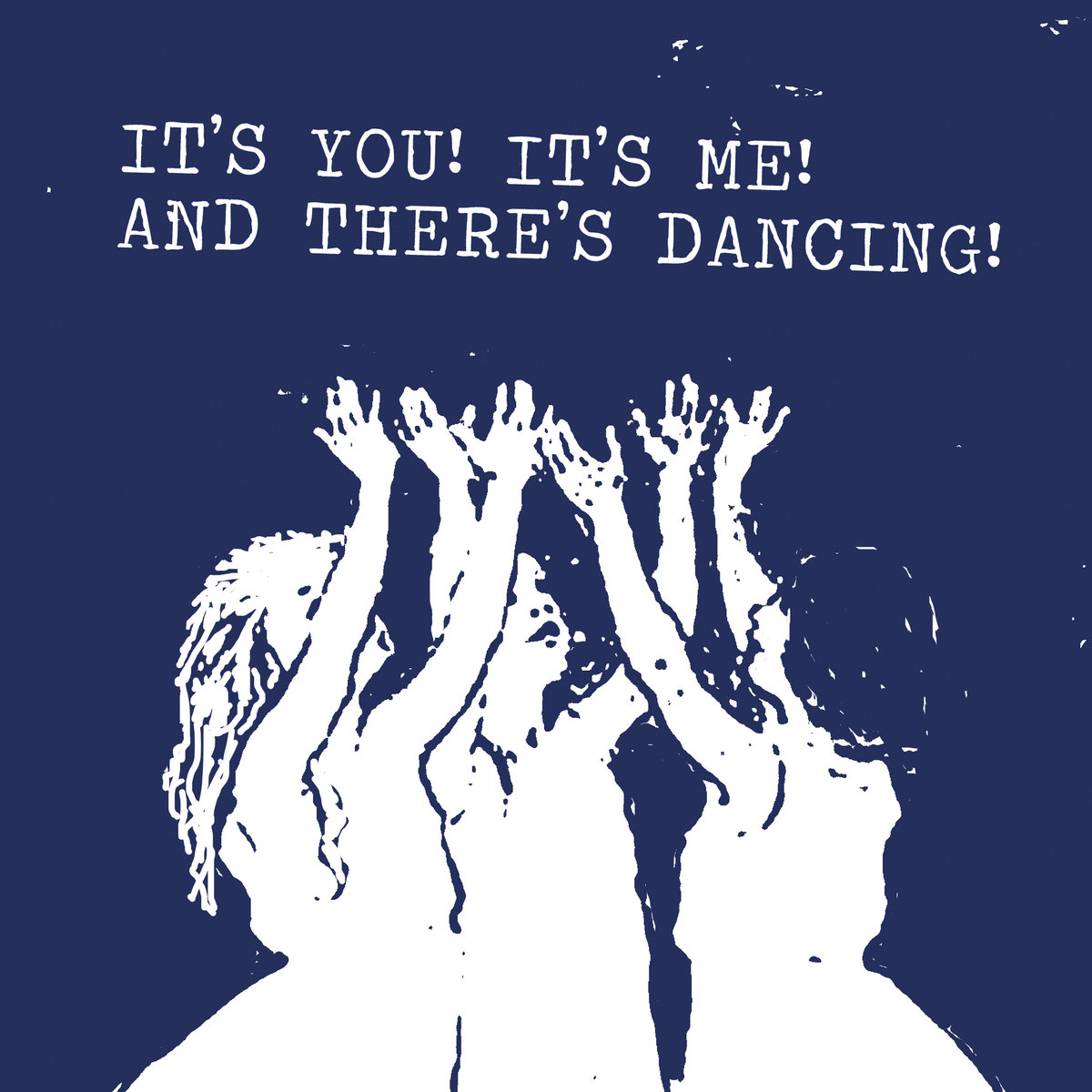The Faux 8 Diaries
/Have you ever seen that video of a guy dancing alone at a music festival? It’s broad daylight in a wide-open field. Some people sit scattered around on blankets, but there he stands, dancing all alone, waving his arms like a wacky waving inflatable arm flailing tube man, grooving out in the truest sense of the word. Eventually, another guy wanders over and starts busting out his funkiest moves, and all of a sudden, this shirtless dude who was standing off by himself is now dancing with someone. Then another person joins in, and three is a crowd. Shortly after that, another couple of people come up, then a group of three. Soon, the mass is growing too fast to count. By the end of the video, people are running towards the crowd, eager to join the actively expanding dance floor. That’s what Fauxchella feels like.
For the uninitiated, Faux (fka Fauxchella) is a DIY/emo/punk music festival in Bowling Green, Ohio, organized by the now-defunct house venue The Summit Shack. While the first two incarnations were hosted at The Shack, all of the following Fauxchellas (plus a few seasonal offshoots) have taken place at Howard’s Club H, a 200-cap dive bar with two stages, $3 PBRs, and $2 shots. Hell yeah. Previous iterations of the fest have included the likes of Origami Angel, Ben Quad, saturdays at your place, Michael Cera Palin, and so many goddamn more. I’m not being hyperbolic at all when I say that it’s basically heaven on earth if you like fast music and guitar tapping.
If you’re interested in learning more about the history of Fauxchella and The Summit Shack, a couple of years ago, I conducted a long-form interview with Conor Alan, which serves as a retrospective of the festival in all its iterations. There’s also a big recap I did on Fauxchella VI, complete with lots of video footage of different sets.
This June, I made the 12-hour drive up to Bowling Green for Faux 8, because this was one I could not miss. First and foremost, this was set to be the last Fauxchella at Howard’s, given that the fest has long outgrown the confines of the dive bar’s charming sticker-covered walls. Musically, I was excited to catch sets from old faves like Equipment, Summerbruise, and Kerosene Heights. There were also many bands on this year’s lineup I was ecstatic to catch for the first time, like Waving, 95COROLLA, Fend, red sun, and Keep for Cheap. On top of all this, the lineup for day two felt like a miniature sequel to Liberation Weekend, featuring the likes of Pretty Bitter, Ekko Astral, and Home Is Where.
Home Is Where
Since I just published a big write-up on Liberation Weekend, I wanted to do something different for Faux and not just go through the lineup band by band. Swim was also tabling the event, slinging shirts, totes, lighters, and cool little zines, so I knew I’d be too busy to realistically catch every set. Instead, I brought my trusty digi cam and tried my best to snap pics of every set and merch spread, plus some cool portraits of band members. Esteemed members of the Swim Team, Josh Ejnes and Ben Parker, were also on-site, so you’ll find their thoughts on each day below, plus some other surprises.
Thanks to Conor, Ellie, Jake, Mike, Sergei, Trey, Nick, Jacob, and all the people who make it possible to put an event like this together. It truly takes a village, and it’s been an absolute blessing to join in and be a part of it. Faux forever.
Faux[DACTED]
Before we get any further into this article, we should address the name of the festival. While the previous seven iterations of the fest were named “Fauxchella,” this year’s iteration was unceremoniously re-titled “FAUX 8.” That’s because, back in April, The Summit Shack received a cease and desist from AEG, the second-largest ticketing company in the world, and, notably, the purveyors of the Coachella music festival. Despite the fact that Coachella is the name of a place, despite the fact that the fest is named after a joke from Workaholics, and despite the fact that “Fauxchella” is a 200-person music festival happening halfway across the country at a college town dive bar in Ohio, AEG still felt the need to sic the lawyers on ‘em.
The Crowd for FinalBossFight!
In the end, Faux 8 played out exactly like any other Fauxchella would, and nothing sizable changed aside from a knowing gap in the posters that were amended to read “FAUX 8” with a big blank spot. A good handful of the bands poked fun at this from the stage between songs, calling attention to how absurd it is that the people running the $600-a-head Influencer Music Festival were getting litigious and using intimidation tactics on a defunct DIY venue. While I’m glad Faux continued unabated, to me, this just feels emblematic of the way that these giant companies will crush, mangle, and intimidate anyone they can if it means a few extra dollars. The fact that they seemed to take so much glee in threatening a zero-profit emo festival, it’s no wonder why live music is in such a bad spot. Fuck you and your $15 beers.
Alright, that's enough preamble, let's get into it.
Josh & Ben on Faux 8: Day One
In all honesty, my specific memories of Faux 8 are few and far between. Edibles are partially responsible for this, but a bigger factor is that—at least for me—enjoyment of an event like Faux comes from surrendering to the experience as a whole rather than latching on to any particular moment. When I try to file things away in my brain for later, I often miss other stuff that’s happening right in front of me, so I prefer instead to just let everything wash over me. One benefit of this approach is that when I do remember something distinct, it means a little more; the imprint a result of organic impact rather than personal diligence.
The thing that stuck with me the most throughout the first day of Faux 8 was how good the sound was; it kind of didn’t make any sense. Over the two days of the festival, more than 40 bands played half-hour sets in rapid succession, a schedule that doesn’t accommodate typical load-ins or soundchecks. On paper, this should be a recipe for frequent technical issues and a poor mix, but everything sounded great. I’m not even grading on a curve here because of the circumstances; the average Faux set sounds better than what you’d expect to hear at your local venue’s regular shows. I think that this high-quality sound production is an underappreciated element of what makes Faux sets so special. Shout out to Jake Pachasa and Mike Seymour, absolute killers on the boards.
Boyclothes
There are so many bands out there that I mean to listen to but don’t. I’ll see a band come across my feed, I’ll pull up Tidal to check them out, and then bang, the doorbell rings or my dog needs to go to the bathroom. By the time I come back to the computer, I've forgotten what I was doing, and suddenly I’m listening to the Menzingers for the thousandth time. FinalBossFight! were a frequent victim of this pattern for me; they just kept falling through the cracks. Watching their set on day one of Faux, I felt like an absolute fool for not checking them out sooner; they were so good and 100% in my wheelhouse. A few songs in, I was thinking about how their stripped-down approach to pop-punk kind of reminded me of Joyce Manor, a thought that was immediately followed by their killer cover of “Five Beer Plan.” It was very serendipitous. FBF! are now a band that will forever be in my regular listening rotation, thank you Faux for the introduction.
Another day one highlight for me was Bottom Bracket, a Chicago band I’d listened to a few times but had never managed to catch live. Their set was a way more arresting performance than I was expecting. I can't fathom how someone can play guitar like that and sing so well at the same time. Their set was at 7 pm, which is where I found myself starting to feel the fatigue of the day, but they snapped me right out of it. Good bands I enjoy; great bands send a jolt through me, and Bottom Bracket firmly sit in the latter camp—very cool stuff.
One of the things I was most looking forward to at the fest was Carly Cosgrove’s performance. This was my first time seeing the band since the release of The Cleanest of Houses Are Empty, and I’ve so badly wanted to yell “You, old, dog, you old dog, you, old, dog, you old dog, you, you old dog, you old dog, you!” in a room full of people since first hearing the record. I finally got to do it at Faux, and it was just as magical as I imagined. Tough to beat seeing a band with a no-skip discography live—great way to cap off the night.
– Josh Ejnes





I am foolishly the kind of person who sees the opportunity to spend a total of 24 hours inside a small dive bar in Ohio and thinks, “How can I spend as much of my time as possible there without leaving?” On day one, I am proud to say I left only once, and that was during the much-earned hour-long break built into the schedule. Even then, I only went next door to a little deli for a chicken sandwich and some waffle fries that were better than they needed to be.
The real reason I wanted to spend so much time at Faux was not just because of the incredible line-up of bands and absurdly cheap drink prices, but because Faux 8, much like all years prior, is really built on such a small and niche community that unites yearly to dance and drink $3 beers together. Nothing from the day stands out more to me than going around and seeing people from the internet who I have been aware of for a long time and was finally able to meet.
There is also something really special about attending a festival and being able to get in a moshpit with the same people that you paid money to see. The band members are all running around and taking time to see the sets. It is very rare anymore that you go to a major show and get to actually talk to the folks who are the show. It is one of the things that makes Faux feel like a giant DIY family reunion.
Bee’s Faux Bucket Hat
There are two bands that I want to take time to talk about, and the first is Later Gator. The Indianapolis emo outfit delivered an incredible side-stage set, despite being in a challenging position, immediately following Topiary Creatures and preceding Bottom Bracket. I was at the first-ever Later Gator show, and to have seen them grow from what they were to a band that can fill the room for a Faux set is incredible. Guitarist Jonathan Bayless and his ability to wield both a guitar and trumpet at the same time is nothing short of wizardry. There were two different covers that the band performed: one was “Higher” by Creed, and the other was a spontaneous, improvised cover of “We Are Young” by fun. that materialized after Bayless broke a string. This band kept the room moving, and it was incredible to see.
The other band I need to mention is Strelitzia, the Arizona-based math rock group who put on what had to be one of the most special performances of the entire Faux weekend. The band rarely gets out of their home state, let alone all the way to the Midwest, so getting to see them come out and play songs off their 2024 album Winter was nothing short of astounding. I sat there at the front, thrashing around and sobbing the entire set. All I can truly say is if you have the opportunity to see this band, take it, because they are better than anybody could ever tell you.
– Ben Parker
Merch Mayhem
Ever since my first Fauxchella six years ago, I’ve viewed merch as an essential part of this festival’s identity. Bands travel from all over for this fest, many already on tours routed to or from Bowling Green just for Faux. This means that almost every band has merch with them, and at this scale, you’ll never know what you’re gonna get. Free stickers? You bet your ass. Hooters logo rips? Sure, why not. Crocheted alligators? Obviously.
Tucked in the back corner of Howard’s main room, spread across two pool tables and half a dozen other surfaces, you will find a packed corner of all the best emo finery you could want. Most bands had shirts and stickers, some of which were custom-made just for this fest. Others offered vinyl records, CDs, tapes, lighters, tapestries, friendship bracelets, and toothbrushes. Several of the bands provided free earplugs, Narcan, drug test kits, Plan B, leftist literature, and wallet-sized cards about how to talk to ICE, as well as other harm-reduction supplies. It was impressive to see all these merch spreads and the infinite ways that artists create beyond the music you hear on the record. Here is a gallery of merch spreads, all photos taken with permission from the bands.
– Taylor Grimes











/// EDITOR'S CONSOLE ///
> SOME ONE HAS HACKED INTO OUR SYSTEM...
> RECEIVING TRANSMISSION...___
___
Caro’s Warped Tour Report: Day One
Hi Taylor, Josh, and Ben! It’s Caro, and I am on the ground and reporting not-live from that national embarrassment happening in D.C. You know, the first stop of the 30th Anniversary of the Vans Warped Tour.
The first thing I did was follow a guy smoking a cigarette and wearing a Memphis May Fire hoodie because I thought he would know where the gates were. He didn’t. But, thanks to my bloodhound navigational skills and a giant sign that said “ENTRANCE HERE,” I found the doors. When I approached the security check, they were blasting “Can We Just Get High?” by Carpool. Honestly, I thought I was imagining it for a second, like a desert mirage, heat psychosis already setting in, but it was real and it rocked. It was finally time to take my first steps into the very big parking lot where this was all going down and start paying $18 per tall boy White Claw all weekend.
The day started with D.C.’s own Origami Angel performing in the first hour slot on one of the main stages to a giant crowd. They played a fuck-this-shit-up version of “Dirty Mirror Selfie” and a “Love Sosa”-infused “Doctor Whomst”. I want to make it clear that people went off for our hometown heroes.
Photo by @realkayls
Publicly, I wrote an article last year about the ascent of saturdays at your place as one of the pillars of contemporary emo — you should read it — so I felt pretty clever when they were announced for Warped Tour. Privately, I’ve had a list on my phone for the past few years called “bands that deserve to have Warped Tour re-invented so they can play in a parking lot at 2 pm,” and saturdays has been on that list since 2023. Hang my byline in the rafters because guess where I was standing at 2:35 pm. Also, why did the founder of Emo Nite walk by me?
saturdays were playing on one of the smaller stages, not the one sponsored by Ghost Energy, not the one sponsored by Beatbox, not the one sponsored by Vans, and not the other one sponsored by Vans. This corner of the festival hosted smaller artists with looser genre affiliations (think local bands like Angel Du$t or legends like Fishbone) and rowdier crowds. In this slice of paradise, saturdays kept the audience locked in through fast jams like their Blink-182-ish “pourover” and the more anthemic songs like “it’s always cloudy in kalamazoo.” The founder of Emo Nite walked by me again. When the band launched into their Certified Emo Classic, “tarot cards,” the crowd reacted accordingly, launching crowdsurfers towards the stage.
After saturdays, I walked over to the Vans Left Foot Stage to scope out the crowd and watch Chiodos. Taylor, Josh, and Ben, I am here to say that there were fewer Elder Emo shirts than you would think. I’m assuming that you picture everyone here wearing something like that, but honestly, of the annoying apparel, it’s pretty evenly divided between Elder Emo shirts, Make America Emo Again hats, and It Was Never a Phase patches, but overall, it just wasn’t a lot of people. Everyone else was wearing band shirts or getting a sunburn in tank tops. Also, Chiodos ruled.
Historically, the Vans Warped compilation CD has never cost more than $5, and Smartpunk collaborated with the festival to keep this tradition alive. They also worked with Warped to do a series of less-formal sets under a tent in the middle of an alley of vendors. On Saturday, they showcased local bands like American Television and The Dreaded Laramie, as well as the cannonball-ish local band Combat. Many reading this may remember Combat’s bombastic Faux performance last year, so imagine that, but at literal Warped Tour. They rocked the fuck out, took requests from audience members like Ryland Heagy and Esden Stafne, and started a thrashing moshpit with passerbys from the Sublime and Cartel crowds.
Photo by Combat
I want to end with this begrudging Day 1 thought: I know it’s easy to be dismissive of the Warped Tour revival. Like I know the jokes write themselves and it’s easy to pick apart, but believe me, your field reporter, the crowd was consistently fucking hyped. For the most part, everyone here paid a lot of money to hear good ass music and good ass music is what they found. Minus Ice Nine Kills.
– Caro Alt
Josh & Ben on Faux 8: Day Two
Trading card trading floor
Went into day two of Faux more tired than I would have liked. I bought a Deal or No Deal DVD game for the trip, sort of as a gag, but my friends and I actually ended up getting quite addicted to it, and our sleep suffered as a result; despite this, I was able to power through and watch some great sets. An earlier-in-the-day favorite of mine was Palette Knife, a late addition to the fest, who had the side stage absolutely rocking. Felt similarly about them as I did Bottom Bracket: how can you play like that and sing like that simultaneously? Doesn’t feel like it should be possible. “Jelly Boi” is one of my favorite emo songs, and I loved hearing it live. Definitely going to be catching Palette Knife next time they’re in Chicago.
Pretty Bitter’s set at Faux 7 was one of the best of the weekend, so I was super stoked to see that they were on the lineup again for Faux 8. I felt like last year the band didn’t fully get the hype they deserved (partially due to a tough mid day timeslot), so I was really happy to see so many people dancing and singing along as they played this year; it seems like they’re a band whose fanbase is growing exponentially, which I couldn’t be happier to see. Through their set, the band’s new stuff mixed in seamlessly with the old, culminating with an all-out performance of the incredibly hooky “The Damn Thing is Cursed,” which brought the house down. Everyone in Pretty Bitter is a great performer, but at Faux 8, I found myself particularly drawn to their drummer, who was smashing those things and doing all sorts of stick spins and tricks—rockstar stuff, love to see it.
Pretty Bitter, Pretty much killin’ it
This brings us to my favorite set of the festival: Fend. I don’t think I’d even heard of Fend heading into Faux, and in all honesty, I had intended to skip their set to catch some fresh air before Summerbruise played. As I started to walk by the side stage, the band’s sound pulled me in like a tractor beam; they were unlike anyone else at Faux. I’ve been listening to their record, Disc, pretty much continuously since I got home, I just can’t get over their vocal melodies. Honestly, I wish I had more specific things to say here, but their set put me into a stupor of sorts; my reaction was visceral in a way I struggle to describe. I guess it was kind of like the first time I had Nerds Gummy Clusters and my brain was firing off in ways it hadn’t in years, the result of elements I’m familiar with being put together in a combination I can’t effectively deconstruct. They just sounded awesome. Listen to this band.
The last day two act that I want to shout out is Leisure Hour, who closed things out on the festival’s side stage. It feels like Leisure Hour have been touring nonstop lately, and their reps on the road are paying off. The band was already great when I first saw them in Chicago last October, but since then, it seems they’ve leveled up even further. The crowd reaction during their closer “jenny” is probably the most hype I saw people get all night, they absolutely owned the space.
– Josh Ejnes
Smash is still a Faux tradition
Much like my peers, I went into day two with little to no sleep. I also overheated on the way in because my friend and I chose to walk the 20 minutes to Faux from the hotel. This was also one of the few times during any fest that I was willing to miss any of the sets, as I was down the road from Howard’s with many Faux attendees for the No King’s Day protest. It was powerful to be there with friends and band members as we all chanted and felt the spirit of protest. It was beautiful, as many Bowling Green locals were out and the streets were lined. I am certain that, of all the things that happened during the weekend, this had to be the most important.
Upon arriving at the festival, I chose to spend my day wandering around and taking time to meet people while passively viewing most of the sets. You kind of hit this realization that you are surrounded by people you won’t see for at least a year, and all you want to do is bask in that community. I took the time to meet the people I was terrified of, such as Mel Bleker from Pretty Bitter, with whom I have developed a friendship over the years on Twitter due to the nature of us both being poets. It led to a beautiful and surreal moment where we were both able to complement each other’s writing and connect as humans. I also got to go with my friend, who had never seen Summerbruise, over to their merch table and talk to Mike, who called me the “Michael Jordan of attending Summerbruise shows.” Being in moshpits and always having a group conversation to walk into is exactly what Faux is about.
Keep for Cheap
There were many sets from Day Two that I loved, and the first I wanted to touch on is Echo. This is a fascinating band as it is essentially just Summebruise flipped around with the drummer, Stanli, taking over vocals and leading the band. They began with a magical cover of “Shooting Stars” by B.o.B. This stood out to me because I had spent the time walking into the fest joking about the concept of a band playing this song on Twitter. The rest of the set was filled with some fun-filled, ass-throwing emo music that had the kids moving early in the morning, as it was many of the protest group’s first set.
Another one of the sets I wanted to highlight is Tiny Voices. This set was always going to be different as their vocalist was unable to make the fest, and Luke Ferkovich (Kule, Endswell) was filling in on the mic. The crowd for this set was absolutely raucous and filled the main stage room. I was right at the front, and early on, I got forced onto the stage from the crowd pushing forward, and not once was I able to get off. It is a testament to this band that even without their vocalist, they were able to put on one hell of a show. Half of the vocals were provided by the crowd, as a beautiful cacophony of mic grabs took place repeatedly throughout the entire set. At one point, Luke even went into the crowd and got the whole room moving. It was the kind of set that jumpstarts a band’s momentum, à la Combat at Faux 7.
Jesus was in attendance
The pinnacle of the day for me was getting to see Summerbruise for the 12th time. They are a truly special Indiana band and one of the few things I feel pride for in my home state. This was a strong four-piece Summerbruise lineup, which couldn’t be a full-band set as Mitch Gulish was at Warped Tour playing with saturdays at your place. Summerbruise played all of the hits, and the first moment that stuck out was during “Dead Daddog 20/20” when the entire crowd overpowered vocalist Mike Newman, who broke down into tears on stage. It was a beautiful moment that was well-deserved by a band that has been a mainstay in the Faux lineup over the years. Outside of Equipment, Summerbruise is the Faux band. This group inspires community and supports each other in a way that not many others do.
Summerbruise was also able to debut their recently released track “Never Bothered,” which really took off at the bridge as around six different band members rushed on stage to grab the mic for backup vocals through the end of the song. The set concluded as many Summerbruise sets do, with Mike introducing “Bury Me at Penn Station” as a song for the community and the people who make these shows worth it (despite it being about his wife). However, this performance was a little different, as Frederick Loeb of Dear Maryanne came onto stage to play guitar, allowing Mike to spend the end of the set in the crowd, connecting with people in a way he usually can’t due to his dual role as a guitarist and singer. Beautiful set from a fantastic band.
– Ben Parker
Summerbruise
/// EDITOR'S CONSOLE ///
> CONNECTION INTERUPTED...
> RECEIVING TRANSMISSION...___
___
Caro’s Warped Tour Report: Day 2
Hi Taylor, Josh, and Ben! I respawned in Parking Lot 6 and am once again live from the Bam Margera Look-Alike Convention. The Hot Topic Conference on Reviving Wallet Chains. The Consortium of People Who Loved Illegally Drinking the Original Four Loko. Vans Warped Tour Day 2. And I am here to see motherfucking Carpool. This bit was sponsored by Ghost Energy. #DRINKGHOST
Warped Tour has an infamous no crowdsurfing rule. Obviously, it’s a joke rule that was historically ignored, but that didn’t stop Kevin Lyman and Co. from putting up the old “you mosh, you crowd surf, you get hurt, we get sued, no more Warped Tour" signs. What they didn’t have a sign against was bands jumping into the crowd. Enter Carpool.
Carpool - Photo by Alec Pugliese
Carpool ripped through heaters like “Come Thru Cool,” “I Hate Music,” and “Thom Yorke New City” (thank you again for playing that), but everything came to a boiling point for “The Salty Song” when Stoph Colasanto jumped the barricade to join the crowd, turning the pit into a party. It has long been the belief of this site that Carpool fucking rocks, but this was the pinnacle so far. The only way for Rochester’s rowdiest crew to go is up. (And if you haven’t checked out Pretty Rude’s new album — fix that.)
Now, Taylor, Josh, and Ben, I don’t think anyone I’ve ever bought old band merch off of has ever performed on a festival main stage, but then Eric Egan walked onto the Ghost stage, so I guess I can cross that one off. I know a lot of y’all have watched Heart Attack Man’s rise and might have even caught them at Faux last year, but did you know they also played in 2018 pre-Fake Blood? It’s all pretty cool and even cooler to see a lot of people came to Warped explicitly for Heart Attack Man.
God bless the state of Oklahoma. That’s all I can think when Cliffdiver starts up. I’ve seen them a lot over the years, but every time I catch them, I can’t help but get completely lost in their positivity and zest for life, despite it all. Like a couple of bands this weekend, Cliffdiver discussed how monumental it felt to be performing at Warped, and it genuinely did feel like an event. After all, how could you not feel important and joyous when Cliffdiver is playing “goin’ for the garbage plate”?
Cliffdiver - Photo by Caitlyn McGonigal
Between Bri Wright’s stage banter and Joey Duffy’s FUCK ICE shirt, Cliffdiver spent a lot of time addressing the political state of things. If you missed the news, Trump held a military parade for his birthday in the city, flooding D.C. with violent dipshits and that tension made its way over to the Festival Grounds of RFK Stadium. All weekend, artists addressed the state of everything: The Wonder Years spoke about trans youth, ICE, and Palestine while Dan Campbell wore a FREE GAZA shirt, Big Ass Truck gave a speech about what they hate, Meredith Hurley from Millionaires wore a Protect Trans Folks shirt, and Buddy Nielsen from Senses Fail addressed the history of sexual assault this festival festered and used his time to advocate for Palestine. This doesn’t even include all the other artists, such as Origami Angel, Scene Queen, Pennywise, Motion City Soundtrack, The Suicide Machines, Red Jumpsuit Apparatus, Magnolia Park, Combat, sace6, and Fever333, and MORE who also dedicated time in their sets to using their voices to advocate for change. This also isn’t even including all of the political conversation happening in the crowds, which largely expressed similar sentiments to these bands and responded with support.
The MVPs of the whole weekend are easily Leisure Hour, who played Fauxchella Saturday night and dipped down to D.C. to play the Smartpunk tent on Sunday evening. Not to mention that their load-in at Warped Tour was literally through the crowd since they weren’t playing a formal stage. Rock and fucking roll. And I concur with Josh, go listen to “jenny.”
Rain had threatened the entire weekend, and the storm was finally unleashed as Kerosene Heights was taking the stage after their drive from Bowling Green. That didn’t stop anyone from partying; in fact, it got everyone even more excited. I was stopped several times through the set by people passing by to ask who they were, all to which I replied, yelling, “KEROSENE HEIGHTS FROM ASHEVILLE.” It was just so fun. It’s kind of what this is all about, you know?
Kerosene Heights - Photo by Alec Pugliese
My final thoughts? I think there’s a temptation to get into an us (very cool music listeners) vs them (nostalgia-obsessed poser) mentality. Because yes, the whole Elder Emo thing is grating, but this was also the first music thing I’ve been to where someone was wearing a Pg. 99 shirt — which is objectively some of the most authentically Elder Emo you can get. My point is that on the ground, it didn’t matter; we were all already there, so there was nothing left to do but have fun. I’m immensely proud of all the new bands that got spots to play the festival and I would be lying if I said I didn’t love seeing the old shit too. I literally almost waited in line to meet Levi Benton from Miss May I.
– Caro Alt
Taylor’s Portraits
Grabbing portraits of bands was something I wanted to do at Liberation Weekend, but I never quite worked up the courage to commit to fully. Because I knew the bands and the space better at Faux, I was much less shy about asking band members for a quick picture whenever the opportunity presented itself. Most of the time, I was operating on a simple “one and done” philosophy, snapping one pic and saying “cute” or “sick” and thanking the band. I’m incredibly proud of how some of these came out, and I hope I can continue to take many more pictures of band members in this capacity.
If you haven’t seen it, we've just launched a Photography wing of this website, featuring photo recaps of concerts. I plan on doing a Faux 8 photo recap at a later date, so more of these to come.














Faux 8: Honorary Day 3
While Faux 8 was only a two-day fest, a daytime Sunday show at The Swarmyard, a local BG DIY institution, acted as an unofficial continuation of the festivities. The lineup consisted of Decatur, Illinois folk rocker Marble Teeth (who we profiled earlier this year) and Equipment. When I showed up at The Swarmyard a little before doors, a group was forming across the street already a few dozen strong. By the time they started letting people in, it was clear the basement would not fit everyone comfortably or safely. Instead, everyone poured back out into the street and assembled at the front of the house for two front porch acoustic sets.
Marble Teeth beguiled with his talky acousti-folk setup, playing guitar, harmonica, and CRT TV. At the beginning of each track, Caleb Jefson would select a song off a custom-made DVD menu, which would provide the beat as he sang and played guitar. He wove through songs off his early LPs Cars and Park, 2023’s top 10 times i’ve cried, as well as some new material that Jefson teased as part of an EP coming out on July 4th.
Marble Teeth
After Marble Teeth’s set, Nick Zander took the mantle of the front porch for an all-request Equipment set. Occasionally joined by Penny and Ellie, the group rocked through a one-of-a-kind three-hour set, playing everything from embarrassing cuts off their 2015 demo to the then-just-a-few-days-old “espresso lemonade.” It was a staggering thing to take in deep cuts from every era of this band as Zander shredded and sang with Springsteen-like endurance. The crowd sang along whenever words were forgotten, and Zander was more than happy to provide the crowd with fun backstory and lore about nearly every track.
The afternoon set was a beautiful and unique experience that will sadly act as the last from the Swarmyard, as the venue was forced to shut down following this show. Much like the AEG C&D, this feels like an overreaction and overreach; the last drops of life being squeezed out of a passionate group of people putting on shows purely out of love. That said, if I know anything about Jacob and Beautiful Rat Records, it’s that this energy will not go away, merely be diverted to other projects. Plus, if there’s any way to close up your house venue, it’s hard to beat a massive, mega four-hour show headlined by hometown heroes like Equipment.
– Taylor Grimes
Equipment
Some Closing Thoughts
Six years ago, I attended my first Fauxchella because a few bands I liked were performing. I figured it was worth the 90-minute drive down from Detroit to see Origami Angel, Stars Hollow, and Charmer. It turns out that “worth it” doesn’t even begin to capture the experience. I came away from Fauxchella III more inspired and enthused about music than I’d ever been in my life. As I sat eating Rally’s on the hood of my car after the gig, I found myself in absolute awe at the type of communal experience that was possible outside the confines of a traditional music festival experience. To me, this realization goes part and parcel with my Pacific Northwestern ass experiencing authentic Midwest DIY culture for the first time, amazed that people could throw shows out of their living room or basement, not to mention the ability to support and interact with bands directly, as opposed to strictly over a merch table (if at all).
After attending Fauxchella III, I came back to Bowling Green for DIY Prom, then (on two separate occasions) made a 12-hour drive up from North Carolina just for Fauxchella. It wasn’t lost on me how silly it was to travel so far and take time off work for a festival happening in a college town outside of Toledo, but the lineups were too specific and too tailored to my tastes. It was like someone took my last.fm charts and turned them into a festival lineup. How could I miss that?
This year at Faux 8, I spoke with a couple who had traveled up from Mexico specifically for this festival. I was pretty amazed and said, “You guys probably traveled further than anyone here.” These were words I wound up eating mere hours later when I was talking to another group who had traveled from Alaska for Faux 8.
On the second day of the festival, I found myself out back chatting with members of Keep For Cheap and Fend when Autumn Vagle said, “Minnesota needs something like this,” referring to Fauxchella’s tight-knit sense of community and impressive artistic draw. Similarly, at one point in the night, I was catching up with Jael Holzman, frontwoman of Ekko Astral and one of the people who spearheaded Liberation Weekend. She cited Fauxchella directly as an inspiration for how a festival like this can and should run, saying that watching Faux over the years was proof of concept that they could do something similar in DC. The result of that inspiration was an incredible festival that raised nearly $40k for the trans rights advocacy collective Gender Liberation Movement. That’s inspiration in action.
With next year’s venue still an unknown, any future Faux will look undeniably different. There will be no more Fauxchella as we’ve known it, but hopefully, there will be Fauxchellas sprouting up everywhere as people take this energy and inspiration back to their home scenes. Fauxchella itself isn’t special. It’s not the venue, the lineup, or even the people running it; what makes Fauxchella special is the community. It’s all these people coming together for two days of music and friendship and $3 beers. What makes Fauxchella special is you.
It feels poetic that Conor Alan, the person organizing most everything related to Fauxchella and the Summit Shack, had a baby on the literal day before Faux 8. As Conor steps into the role of father, it feels as if his other baby is now finally old enough to go off and live on its own. The format of this festival is something that can (and should) be replicated in every music scene across the country. And hey, maybe the first version is just a bunch of local bands and comedians performing in a garage, but keep at it, and who knows how big it could become? Who knows how many people will travel from other states and countries to be a part of your scene? What I do know is that you won’t find out until you start.
Fauxchella, as it has existed for the last near-decade, is gone, but in its place will come another Fauxchella in a different place run by the same people. Then another Faux-like festival with a different name, run by a completely different group of people. Then maybe even one in your hometown. Faux is more than just a music festival; it’s an idea, and ideas can be replicated, shared, and built upon. This is yours now.
Fauxchella Forever ∞



